
- WEgivesback
- 2024 Terms & Conditions
- Join Our Teaching Team
- Student Portal Guide

Primary Creative Writing
Primary creative english writing class.
In our most popular and highly-effective Primary Creative Writing Classes, we employ a dual-pronged approach of skills-based and thematic-based lessons as we prepare children for the Composition Writing component in Primary School Leaving Examinations (PSLE).
Creative Writing Skills & New Vocabulary
Students are taught how to apply a consistent set of Creative Writing skills in their compositions. New vocabulary is introduced through different story topics each week.
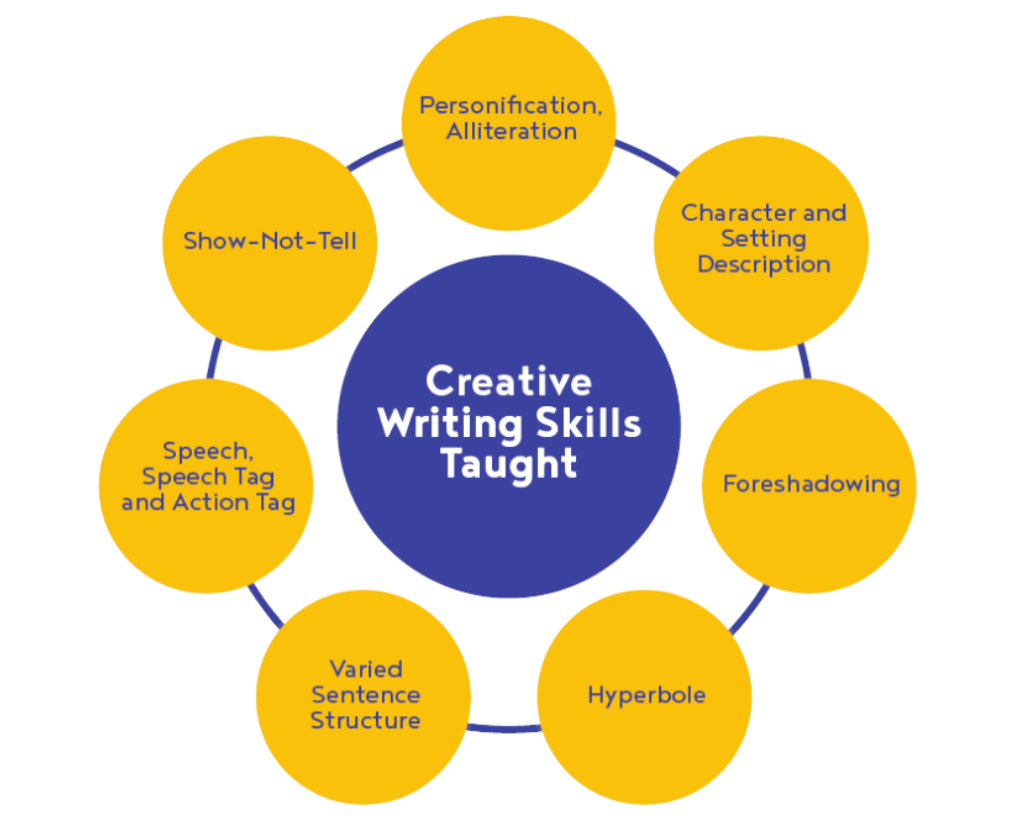
Small Class Size Of 6-8 Students
Honing their writing skills in a small, conducive class size of 6-8 students will give students the space to fully develop their craft. Teachers are also able to give individual students close attention and guidance in their writing.
Students Progress
Students will be faced with more writing challenges as they progress to the next school level. They will thus be exposed to, and learn more complex skills like “foreshadowing” and “building suspense”.
As students progress up each level, we prepare them by introducing more skills progressively.
Composition Writing
Students complete a full composition in class every 1-2 weeks. Each student will receive detailed, written feedback at the end of each lesson. Our lessons are structured according to skills-based, guided writing, and independent writing classes.
Guided Writing Lessons
Together with our teachers, students will explore a comprehensive list of topics and themes found commonly in MOE School, Prelim, and PSLE are covered. They will also be exposed to model essays with captivating plots, whilst learning to apply them with relevant vocabulary across various topics.
Students are taught systematically how to craft a well-developed story.
- Explore a comprehensive list of topics and themes
- Exposure to model essays with captivating plots
- Learn relevant vocabulary across various topics
- Reinforcement of WE skills and plot elements throughout term
- Vocabulary exercises assigned after each guided practice to encourage retention
- Common MOE School, Prelim and PSLE topics covered
Independent Writing Lessons
Students will put what they have learnt to the test. They will come up with plot ideas for each topic independently with minimum help from their teachers or materials.
- Students to attempt to use 1, 2, or 3 pictures as a focal point in the story
- Students will have the chance to apply skills and vocabulary learnt independently to their writing.
- Parents are encouraged to bring school practices for teachers to evaluate their learning progress
- Mock Assessments are conducted for P1-P4 students in Term 2; P5 & P6 students in Term 2 and 3
Download Our Curriculum Showcase
At Write Edge, teachers spend a substantial amount of time to teach the children a set of Creative Writing Skills (such as Show-Not-Tell, 5 Senses, Speech + Speech tag + Action Tag, Varied Sentence Structures, Ways to say “Said”, Personification etc.) These skills are reinforced weekly to ensure that they are familiar with how to use and apply them in their work.
Through the teachers’ close guidance and clear, instructional materials, we help our students apply these skills to their writing weekly.
Students will write a composition every week and we cover as many themes/topics/story ideas as we can throughout the year. For more complex topics like ‘dilemma’ or ‘loyalty’, the compositions will be completed across two weeks. As the students progress up each level from Primary 1 to 6, more advanced skills, phrases and themes will be introduced to them.
We strictly run small classes of 6-8 students and this promotes higher interaction between the teachers and the students. Not many centres offer such a low student-teacher ratio.
Our small classes of 6-8 allow our teachers to give every individual close attention and guidance.
This is particularly helpful and important for writing classes. Teachers are able to do detailed marking and give meticulous feedback on your child’s progress.
Our learning materials are also specially curated by our curriculum specialists and senior teachers. They are improved frequently to ensure clarity and effectiveness.
We are also up to date with the latest MOE syllabus.
Our teachers are trained, dedicated and passionate! We do our best to ensure that every child learns at Write Edge regardless of ability.
Yes. Your child may attend a trial class before deciding if our programme is suitable for him/her.
Yes. All students are required to do a draft 2 of every composition written in class. Draft 2 is the corrected copy of their draft 1. This helps them to learn from their mistakes, revise their story plot, impressive phrases, sentence structures and other skills taught in class.
If the student is unable to finish what was tasked for that day, they will have paragraphs to complete at home. Over time, as they familiarise themselves with the skills, phrases and the writing duration, they should be able to finish what is tasked for the lesson.
As we run a small class of 6-8 students, the teacher is typically able to give enough attention to all students, including the students who might not be able to catch up as quickly as the rest.
Attending a creative writing class should help to improve your child’s overall English Language competency. Through the writing process, they are able to put practice their usage of grammar, spelling, punctuation and vocabulary.
Over time, as the students practise what is taught in class and learn to apply them in school, they should be able to see an improvement in their composition grades.
However, there are some instances where we recommend students to attend a regular English class instead of a Creative Writing class.
We strongly encourage that students attend all four terms as we teach different creative writing skills and cover different topics every term. Attending the classes for the whole year will provide the students with a well-rounded experience at Write Edge.
Progress differs from child to child. Some students see good improvement within 3 to 6 months of attending Write Edge, while others take longer. For children who have a weaker foundation in their sentence structures, grammar, spelling, punctuations, teachers will spend more time building their foundation before focusing on other more complex aspects of writing.
Ultimately, beyond attaining stellar grades, we believe that providing the platform for students to write, practise, make mistakes and revise their drafts weekly will benefit them in the long run. The important language and writing skills acquired will prepare them for their examinations and beyond.
– Lessons are conducted as usual during the MOE school holidays (March, June and September). Our term ends in November ie: no classes during December holiday.
– With the exception of Chinese New Year, New Year and Christmas, lessons will be conducted as usual for any other Public Holiday that falls on a Saturday or Sunday,
– Classes will not be scheduled on gazetted Public Holidays that falls on weekdays and fees will be prorated accordingly.
Replacement lessons are scheduled within the week at a maximum of twice a term and is subjected to availability.
Worksheets will be given if there are no suitable timings for replacement.
Strictly no prorate, credit or refund for lesson missed.
Most Primary 1s are suitable for Write Edge’s creative writing programme. Students are exposed to a wide range of interesting story plots, good language and writing skills.
As young writers, a lot of guidance is given throughout the lesson. It is common for some P1s to struggle with spelling, grammar, punctuation, sentence construction and coming up with logical plot ideas. With practice and guidance from our teachers in a small class, they should see gradual improvement in these areas.
However, there are instances where we recommend students to attend a regular English class before joining our creative writing class.
We will suggest for the student to try for about a term so we can more accurately assess if he/she is suitable for the class.
Have other questions in mind?
Testimonials.
© Write Edge – All Rights Reserved
You are using an outdated browser. Please upgrade your browser to improve your experience.
Start here!
Type any keyword below
Filter results.
We're open 8am - 4.30pm / Mon - Fri
Using the performing arts, our primary school workshops empower young people – helping both pupils and teachers access the creativity in their curriculum. Browse our range of 100+ creative workshops, available both in-school and online.
In-School Workshops
We provide 100+ creative workshops for primary schools all over the UK!
Online Workshops
Discover Uno, a video library filled with interactive workshops to aid creative learning.
Spring Term Picks
Kick off 2024 in style...
Into the Screen (KS1 Online Safety)
Playing online can be lots of fun, with wonderful worlds to explore and cool characters to meet! But what dangers might we find?
Be Kind Online
This interactive workshop explores how social media, the Internet and in particular online gaming are an integral part of life today.
Chinese Ribbon Dancing
Bring the colourful, swirling excitement of Chinese Ribbon Dance into your school hall! In this Chinese dance workshop.
Watch a One Day Creative 'Online Safety' workshop in action!
February 12, 2024
Safer Internet Day 2024: In Pictures
We've absolutely loved seeing your Online Safety workshop photos this year!
September 13, 2023
Important Dates For Schools: Plan Your Academic Year 2023-2024
Diaries at the ready! From Anti-Bullying Week to World Book Day, here's what will be taking your school by storm this year.
"Liked the activeness and how engaged the children were. Behaviour management was brilliant. The children learnt key facts as well as overall ideas and are now really enthusiastic about our new topic!"

Teaching creative writing in primary schools: a systematic review of the literature through the lens of reflexivity
- Open access
- Published: 17 June 2023
Cite this article
You have full access to this open access article
- Georgina Barton ORCID: orcid.org/0000-0003-2703-238X 1 ,
- Maryam Khosronejad 2 ,
- Mary Ryan 2 ,
- Lisa Kervin 3 &
- Debra Myhill 4
4160 Accesses
Explore all metrics
Teaching writing is complex and research related to approaches that support students’ understanding and outcomes in written assessment is prolific. Written aspects including text structure, purpose, and language conventions appear to be explicit elements teachers know how to teach. However, more qualitative and nuanced elements of writing such as authorial voice and creativity have received less attention. We conducted a systematic literature review on creativity and creative aspects of writing in primary classrooms by exploring research between 2011 and 2020. The review yielded 172 articles with 25 satisfying established criteria. Using Archer’s critical realist theory of reflexivity we report on personal, structural, and cultural emergent properties that surround the practice of creative writing. Implications and recommendations for improved practice are shared for school leaders, teachers, preservice teachers, students, and policy makers.
Similar content being viewed by others

Re-imagining narrative writing and assessment: a post-NAPLAN craft-based rubric for creative writing
Michael D. Carey, Shelley Davidow & Paul Williams
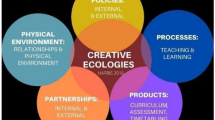
Radical rubrics: implementing the critical and creative thinking general capability through an ecological approach
Dan Harris, Kathryn Coleman & Peter J. Cook

Autofictionalizing Reflective Writing Pedagogies: Risks and Possibilities
Avoid common mistakes on your manuscript.
Introduction
Creative writing in schools is an important part of learning, assessment, and reporting, however, there is evidence globally to suggest that such writing is often stifled in preference to quick on-demand writing, usually featured in high-stakes testing (Au & Gourd, 2013 ; Gibson & Ewing, 2020 ). Research points to this negatively impacting particularly on students from diverse backgrounds (Mahmood et al., 2020 ). When teachers teach on-demand writing typical pedagogical traits are revealed, those that are often referred to as formulaic (Ryan & Barton, 2014 ). When thinking about creative writing, however, Wyse et al. ( 2013 ) noted that it involves the absence of structure and teaching creative writing requires an ‘open’ pedagogical approach for students to be given imaginative choice. By this, they mean that teachers need to consider less formulaic ways to teach writing so that students can experience different opportunities and ways to write creatively. They argued that if students are not given the flexibility to experiment through writing then their creativity might be stifled. Similarly, Barbot et al. ( 2012 ), who carried out a study with a panel of 15 experts of creative writing, posited that creative writing is when students draw on their imagination and other creative processes to create fictional narratives or writing that is ‘unusually original’. They also noted that creative writing is important for the development of students’ critical and creative thinking skills and ways in which they can approach life in creative ways.
Creative writing is defined in various ways in literature. Wang ( 2019 ) defined creative writing as a form of original expression involving an author’s imagination to engage a reader. Other definitions of creative writing involve the notion of children’s imagination, choice, and originality and much research has explored the concept of creativity within and through the writing process.
While creative writing is defined in various ways, and the many ways that it is treated in literacy education, this article is not concerned with the nature of the term per se. Rather, it focusses on research about creative writing and creativity in writing to understand how research unpacks the personal and contextual characteristics that surround creative writing practices. To this aim, we adopt a broad definition of creative writing as a form of original writing involving an author’s imagination and self-expression to engage a reader (Wang, 2019 ). Creative writing is important for children’s development (Grainger et al., 2005 ), allowing them to use their imagination and broaden their ability to problem-solve and think deeply. Creativity in writing refers to specific aspects within a writing product that can be deemed creative. Some examples include the use of senses and how a writer might engage a reader (Deutsch, 2014 ; Smith, 2020 ).
International research on teaching writing has indicated a loss in innovative or creative pedagogical practices due to the pressure on teachers to teach prescribed writing skills that are assessed in high-stakes tests (Göçen, 2019 ; Stock & Molloy, 2020 ), often resulting in specific trends including teaching a genre approach to writing (Polesel et al., 2012 ; Ryan & Barton, 2014 ). A comprehensive meta-analysis by Graham et al ( 2012 ), designed to identify writing practices with evidence of effectiveness in primary classrooms, found that explicitly teaching imagery and creativity was an effective teaching practice in writing. In addition, a review of methods related to teaching writing conducted by Slavin et al. ( 2019 ) included studies that statistically reported causal relationships between teacher practice and student outcomes. Common themes in Slavin et al’s ( 2019 ) quest for improving writing included comprehensive teacher professional development, student engagement and enjoyment, and explicit teaching of grammar, punctuation, and usage. While they did not specifically cite creativity, motivating environments and cooperative learning were important characteristics of writing programs.
This systematic literature review aims to share empirical international research in the context of elementary/primary schools by exploring creativity in writing and the conditions that influence its emergence. It specifically aims to answer the question: What influences the teaching of creative writing in primary education? And how can reflexivity theorise these influences? The review shares scholarly work that attempts to define personal aspects of creative writing including imagination, and creative thinking; discusses creative approaches to teaching writing, and shows how these methods might support students’ creative writing or creative aspects of writing.
Writing is a complex process that involves students making decisions about word choice, sentence, and text structure, and ways in which to engage readers. Such decisions require a certain amount of reflection or at times deeper reflexive judgments by both teachers and students. Consequently, we draw on Archer’s ( 2012 ) critical realist theory of reflexivity to guide our review as research shows that reflexive thinking in practice can improve writing outcomes (Ryan et al., 2021 ). Archer ( 2007 ) highlights how reflexivity is an everyday activity involving mental processes whereby we think about ourselves in relation to our immediate personal, social, and cultural contexts. She suggests we make decisions through negotiating the connected emergences of personal properties (PEPs) related to the individual, structural properties (SEPs) related to the contextual happenings and cultural properties (CEPs) related to ideologies, each of which is influenced by the other developments. These decisions influence, and are influenced by, our subsequent actions. In applying reflexivity theory to writing (see Ryan, 2014 ), we cannot simply focus on the writing product, but should also interrogate the process of writing, that is, the influences on decision-making and design which are enabled or constrained through pedagogical practices in the classroom. Writing practices and outputs are formed through the interplay of personal, structural, and cultural conditions. Student decisions and actions about writing ensue through the mediation of personal (e.g. beliefs, motivations, interests, experiences), structural (e.g. curriculum, programs, testing regimes, teaching strategies, resources), and cultural (e.g. norms, expectations, ideologies, values) conditions. Therefore, teachers play an important role in facilitating the interplay of these conditions for their students and recontextualising curricula and policy (Ryan et al., 2021 ). For example, by enabling students’ agency and creating an authentic purpose for writing, teachers can balance the personal conditions of students (such as their motivation and interest) against the structural effects of the curriculum requirements. Using a reflexive approach to investigating the literature on creative writing we aim to reveal the personal, structural, and cultural conditions surrounding the study and the practice of creative writing. We argue that it is through the understanding of these conditions that we can theorise how a. students might make their writing more creative and b. how teachers might establish classroom conditions conducive to creativity.
The approach taken for this paper was guided by the PRISMA method (Moher et al., 2009 ) for conducting systematic literature reviews (see Table 1 ).
Our electronic search involved several databases: researchers’ library online catalogue, EBSCO host ultimate, ProQuest, Eric, Web of Science, Informit, and ScienceDirect. Using the following search terms: creativ* AND (‘teaching methods’ OR pedagog*) AND writing AND (elementary OR primary) to search titles and abstracts as well as limiting the search to peer-reviewed articles written in English within a 10-year timeframe (2011–2020), we initially retrieved 172 articles. Information about all 172 articles was input into a data spreadsheet including author, article title, journal title, volume and issue number, and abstract. Once completed, these articles were divided into two equal groups and two researchers were assigned to review the articles for relevancy against the following inclusion criteria:
Studies were peer-reviewed empirical research published in English;
Participants were primary students and/or teachers;
Students were not specifically English as a Second or Additional Language/Dialect learners (samples of culturally and linguistically diverse students in primary classrooms were included);
Studies were not carried out in curriculum areas other than English; and
Studies did not have a specific focus on digital technologies in the classroom.
For this systematic review, we were interested in the ways in which teachers thought about, understood, and taught the ‘creative’ aspect of writing.
The 25 studies that met the inclusion criteria were synthesised to review what influences the improvement of creative writing in primary education. We analysed the papers for how creative writing and/or creative aspects in writing were viewed as well as how teachers might best support students to develop reflexive capacities to improve the creative aspects of writing. We also identified any personal, structural, and/or cultural emergences that might impact on the effectiveness of students’ creative writing. Two of the authors read the entire articles and identified four main categories of research which were (1) understanding creative writing; (2) creative thinking and its contribution to writing; (3) creative pedagogy; and (4) what students can do to be more creative in their writing. These were cross-checked by the entire research team. Some of the papers fit more than one of these themes. In the next section, each theme is introduced and defined and then the articles that fall within the theme are reviewed.
Overall a total number of 25 articles had overlapping themes that included various personal and contextual aspects. Figure 1 shows what we have identified as the key themes under each category. In the next sections, we represent papers based on their main theme.
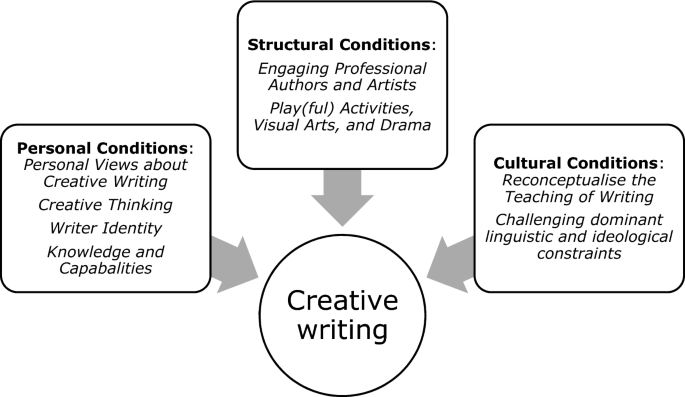
The personal, structural, and cultural conditions surrounding creative writing
Personal emergent properties
A total number of 13 articles were about what students can do to be more creative in their writing (Mendelowitz, 2014 ; Steele, 2016 ) and how teachers’ and students’ personal characteristics relate to the development of creative writing. These articles were mainly focussed on the personal emergent aspects of writing (Alhusaini & Maker, 2015 ; Barbot et al., 2012 ; Cremin et al., 2020 ; DeFauw, 2018 ; Dobson, 2015 ; Dobson & Stephenson, 2017 , 2020 ; Edwards-Groves, 2011 ; Healey, 2019 ; Lee & Enciso, 2017 ; Macken-Horarik, 2012 ; Ryan, 2014 ). The personal aspects identified in our review were (1) personal views about creative writing, (2) creative thinking, (3) writer identity, (4) learner motivation and engagement, and (5) knowledge and capabilities.
Personal views about creative writing
From our systematic review, we identified three articles exploring views about what creative writing is, and more specifically the role that it plays and the elements that make creative writing, in primary classrooms. One of these studies was focussed on the views and experiences of experts in writing (Barbot et al., 2012 ), whereas the other two investigated students’ perspectives and experiences (Alhusaini & Maker, 2015 ; Healey, 2019 ). Barbot et al’s ( 2012 ) work, for example, recognised that creative writing involves both cognitive and metacognitive abilities. This was determined by the expert panel of people whose work related to writing including teachers, linguists, psychologists, professional writers, and art educators. The panel were asked to complete an online survey that rated the relative importance of 28 identified skills needed to creatively write. Six broad categories were identified as a result of the responses and the rank given to each factor by the expert groups (See Table 2 ). They acknowledged that these features cross over various age groups from children to professional writers.
Findings suggested that each independent rater weighted different key components of creative writing as being more or less important for children. Overall, the findings showed.
a global ‘consensus’ across the expert groups indicated that creative writing skills are primarily supported by factors such as observation, generation of description, imagination, intrinsic motivation and perseverance, while the contributions of all of the other relevant factors seemed negligible (e.g. intelligence, working memory, extrinsic motivation and penmanship). (p. 218)
One factor that was ranked as critical by most respondents, but underemphasised by teachers, was imagination. Teachers’ work in classrooms around creative writing is complex due to the difficulty in defining imagination (Brill, 2004 ). Teachers also under-rated other aspects related to creative cognition.
Another study that explored students’ creativity in writing was conducted by Alhusaini and Maker ( 2015 ) in the south-west of the United States. Participants included 139 students with mixed ethnicities including White, Mexican American, and Navajo. This study involved six elementary/primary school teachers judging students’ writing samples of open-ended stories. To assess the work a Written Linguistic Assessment tool, which was based on the Consensual Assessment Technique [CAT] (Amabile, 1982 ) was implemented. According to Baer and McKool ( 2009 ), The CAT involves experts rating written artefacts or artistic objects by using their ‘sense of what is creative in the domain in question to rate the creativity of the products in relation to one another’ (p. 4). Interestingly, Alhusaini and Maker ( 2015 ) found the CAT to be effective in relation to interrater reliability. The authors do not share what the Judge’s Guidelines to Assess Students’ Stories entail. They mention the difference between technical quality and creativity and note that assessors were able to distinguish the differences between the two, but the reader is not made aware of the aspects of each quality. Overall, the study revealed that one of the most challenging problems in the field of creativity and writing is trying to measure creativity across cultures by using standardised tests. Such studies could have implications for other students from culturally and linguistically diverse backgrounds as teachers become more aware of cultural nuances in constituting ‘creative’ in creative writing.
The final study we identified in this category was by Healey ( 2019 ). Healey employed an Interpretative Phenomenological Analysis (IPA) and explored how eight children (11–12 Years of age) experienced creative writing in the classroom. He shared how children’s writing experiences were based on ‘the affect, embodiment, and materiality of their immediate engagement with activities in the classroom’ (p. 184). Results from student interviews showed three themes related to the experience of writing: the writing world (watching, ideas from elsewhere, flowing); the self (concealing and revealing, agency, adequacy); and schooled writing (standards, satisfying task requirements, rules of good writing). The author stated that children’s consciousness shifts between their imagination (The Writing World) and set assessment tasks (Schooled Writing). Both of these worlds affect the way children experience themselves as writers. Further findings from this work argued that originality of ideas and use of richer vocabulary improved students’ creative writing. Vocabulary improvement included diversity of word meanings, appropriate usage of words, words being in line with the purpose of the text; while originality of ideas featured creative and unusual (original) ideas—which in many ways is difficult to define.
Overall, when concerned with personal views and attitudes in creative writing, the two studies by Healey ( 2019 ) and Barbot et al. ( 2012 ) show contrasting findings about ‘imagination’ captured through the view of students and teachers, respectively. While Healey’s ( 2019 ) study suggests that children shift between their imagination and set assessment tasks in creative writing, Barbot et al. ( 2012 ) highlight the lack of attention to imagination among their participated teachers. Although these results cannot be generalised, they highlight the significance of understanding personal emergent properties that both students and teachers bring to the classroom and the way that they interact to affect the experience of creative writing for learners. From this theme, we suggest the importance of educators acknowledging students’ imagination through their definition of creative writing as well as providing quality time for students to choose what they write through imaginative thought. We now turn to creative thinking and related pedagogical approaches to teaching creative writing from the research literature.
Creative thinking
We identified two articles that were focussed on creative thinking and its contribution to writing (Copping, 2018 ; Cress & Holm, 2016 ). Copping ( 2018 ) explored writing pedagogy and the connections between children’s creative thinking, or a ‘new way of looking at something’ (p. 309), and their writing achievement. The study involved two primary schools in Lancashire, one in an affluent area and one in an underprivileged area. Approximately 28 children from each school were involved in two, 2-day writing workshops based on a murder mystery the children had to solve. Findings from this study revealed that to improve students’ writing achievement (1) a thinking environment needs to be created and maintained, (2) production processes should have value, (3) motivation and achievement increase when there is a tangible purpose, and (4) high expectations lead to higher attainment.
Cress and Holm’s ( 2016 ) study described a curricular approach implemented by a first-grade teacher and their class comprised 13 girls and 11 boys. The project known as the Creative Endeavours project aimed to develop creative thinking by (1) creating an environment of respect with a positive classroom climate. (2) offering new and challenging experiences, and (3) encouraging new ideas rather than praise. The authors argued that through peer collaboration and the flexibility to choose their own projects, children can become more authentically engaged in the writing process. The children wrote about their experiences and their choices, and reflected upon the projects undertaken. In this study, it was revealed that the children showed diversity in their writing assignments including presentation through sewing, photography, and drama. While there were only two papers in this particular theme, their findings are supported by systematic reviews (Graham et al., 2012 ; Slavin et al., 2019 ) that emphasise not only new ways of exploring a range of concepts for learning but also the creation of motivating environments for improving writing (Copping, 2018 ). In addition to the significance of positive and encouraging learning environments, these two studies suggest that setting ‘high expectations’ or ‘challenging experiences’ are conducive to creative thinking however, teachers would need to set appropriate, reflexive conditions for this to occur.
Writer identity
Studies in this category revolve around choice and learner writer identity. The study carried out by Dobson and Stephenson ( 2017 ) focussed on developing a community of writers involving 25 primary school pupils from low socio-economic backgrounds. The project was offered over 2 weeks and featured a number of creative writing workshops. The authors applied the theoretical frameworks of practitioner enquiry and discourse analysis to explore the children’s creative writing outputs. They argued that the workshops, which promoted intertextuality and freedom for the children as writers, enabled a shifting of their ‘writer’ identities (Holland et al., 1998). Dobson and Stephenson ( 2017 ) showed that allowing students to make decisions and choices in regard to authentic writing purposes supported a more flexible approach. They recommend stronger partnerships between schools and universities in relation to research on creative writing, however, it would be important for these relationships to be sustainable.
The second paper on this theme is by Ryan ( 2014 ) who noted that writing is a complex activity that requires appropriate thinking in relation to the purpose, audience, and medium of a variety of texts. Writers always make decisions about how they will present subject matter and/or feelings through all of the modes. Ryan ( 2014 ) suggested that writing is like a performance ‘whereby writers shape and represent their identities as they mediate social structures and personal considerations’ (p. 130). The study analysed writing samples of culturally and linguistically diverse Australian primary students to uncover the types of identities students shared. It found that three different types of writers existed—the school writers who followed teacher instructions or formulas to produce a product; the constrained writers who also followed instructions and formulas but were able to add in some authorical voice; and the reflexive writers who could show a definite command of writing and showed creative potential. Ryan ( 2014 ) argued that teachers’ practices in the classroom directly influence the ways in which students express these identities. She stated that when students are provided choices in writing, they are more able to shape and develop their voices. Such choices would need to include quality time and support to be reflexive in the decisions being made by the students.
The Teachers as Writers project (2015–2017) was conducted by Cremin, Myhill, Eyres, Nash, Wilson, and Oliver. In a recent paper ( 2020 ), the team reported on a collaborative partnership between two universities and a creative writing foundation. Professional writers were invited to engage with teachers in the writing process and the impact of these interactions on classroom teaching practices was determined. Data sets included observations, interviews, audio-capture (of workshops, tutorials and co-mentoring reflections), and audio-diaries from 16 teachers; and a randomised controlled trial (RCT) involving 32 primary and secondary classes. An intervention was carried out involving teachers writing in a week long residence with professional writers, one-on-one tutorials, and extra time and space to write. They also continued learning through two Continuing Professional Development (CPD) days. Results showed that teachers’ identities as writers shifted greatly due to their engagement with professional authors. The students responded positively in terms of their motivation, confidence, sense of ownership, and skills as writers. The professional authors also commented on positive impacts including their own contributions to schools. Conversely, these changes in practice did not improve the students’ final assessment results in any significant way. The authors noted that assuming a causal relationship between teachers’ engagement with writing workshops and students’ writing outcomes was spurious. They, therefore, developed further research building on this learning.
Knowledge and capabilities
The role of knowledge and capability is central to the articles in this category. In Australia, Macken-Horarik ( 2012 ) reported on the introduction of a national curriculum for English. This article drew on Systemic Functional Linguistics (SFL) by investigating the potential of Halliday’s notion of grammatics for understanding students’ writing as acts of creative meaning in context. Macken-Horarik ( 2012 ) argued that students needed to know deeply about language so that they could make creative decisions with their writing. She outlined that a ‘good enough’ grammatics would assist teachers in becoming comfortable with ‘playful developments in students’ texts and to foster their control of literate discourse’ (p. 179).
A project carried out by Edwards-Groves in 2011 highlights the role of knowledge about digital technologies in writing practices. 17 teachers in primary classrooms in Australia were asked to use particular digital technologies with their students when constructing classroom texts. Findings showed that an extended perspective on what counts as writing including the writing process was needed. Results revealed that collaborative methods when constructing diverse texts required teachers to rethink pedagogies towards writing instruction and what they consider as writing. It was argued that technology can be used to enhance creative possibilities for students in the form of new and dynamic texts. In particular, it was noted that teachers and students should be aware that digital technologies can both constrain and/or enable text creation in the classroom depending on a number of variables including knowledge and understanding, locating resources and logistical issues such as connectivity and reliability.
In addition, Mendelowitz’s ( 2014 ) study argued that nurturing teachers’ own creativity assisted their ability to teach writing more generally. She noted several ‘interrelated variables and relationships that still need to be given attention in order to gain a more holistic understanding of the challenges of teaching creative writing’ (p. 164). According to Mendelowitz ( 2014 ), elements that impacted on these challenges include teachers’ school writing histories, conceptualisations of imagination, classroom discourses, and pedagogy. Documenting teachers’ work through interviews and classroom observations by the researcher, the study found that teachers need to be able to define imagination and imaginative writing and know what strategies work best with their students. She noted that the teacher’s approaches to teaching writing ‘powerfully shaped by the interactions between their conceptualisations and enactments of imaginative writing pedagogy’ (p. 181) and that these may either limit or create a space for students to be more creative with their writing.
Such Personal Emergent Properties show that individual attributes of both teachers and students are important in learning creative writing. The next section of the paper explores the articles that shared various structural and cultural properties.
Structural emergent properties
In the subset of structural emergent properties, we mainly identified pedagogical approaches for creative writing that explored primary school learning and teaching (Christianakis, 2011a ; Christianakis, 2011b ; Coles, 2017 ; DeFauw, 2018 ; Hall & Grisham-Brown, 2011 ; Portier et al., 2019 ; Rumney et al., 2016 ; Sears, 2012 ; Steele, 2016 ; Southern et al., 2020 ; Yoo & Carter, 2017 ). These pedagogical approaches were aimed at addressing issues related to personal emergent properties such as motivation and engagement, and confidence in writing. The two categories of writing pedagogies were those that engaged professional authors and artists in teaching about creative writing, and the approaches that involved play(ful) activities, and use of visual arts, and drama.
Engaging professional authors and artists
Interestingly, many of the studies used literary forms and/or professional creative authors to spike interest and motivation in the students. Coles’ ( 2017 ) study, for example, used a garden-themed poetry writing project to support 9–10-year-old children’s creative writing in a London primary school. The 5-week project partnered with a professional creative writing organisation that facilitated the Ministry for Stories (MoS) writing centres across the USA. The study found that the social relationships created through this partnership allowed for a more inclusive and socially generative model of creativity. This meant that teachers should not just include creative aspects in assessment rubrics but rather recognise that creativity is encouraged through imagination and working with others. The researchers found improvements in the children’s participation in classroom writing activities as well as diversity in the ways they expressed their writing. The approach valued ‘rich means of expression rather than a set of rules to be learnt’ (p. 396). They also acknowledged issues associated with school–community partnerships including the sustainability of the practice.
Similarly, Rumney et al. ( 2016 ) found that using creative multimodal activities increased students’ confidence and motivation for writing. The study implemented the Write Here project with over 900 children in 12 primary and secondary schools. The study involved the children visiting local art galleries to work with professional authors and artists. Case studies were presented about pre-writing activities, the actual gallery work and post-gallery follow-up sessions. It aimed to improve students’ social development and literacy outcomes through diverse learning activities such as visual art and play in different contexts such as art galleries and classrooms. Like Coles’ ( 2017 ) study, this project showed that creative activities (e.g. talking about and acting out pictures; using story maps; backwards writing and planning) engaged students more than just teaching skills.
In addition, DeFauw’s ( 2018 ) study had student-centred learning and leadership at the core when working with a children’s book author for one year. The collaboration involved three face-to-face sessions with the author as well as online communication through blog posts. Data included recorded interactions, readings and pre and post interviews with teachers ( n = 9), students ( n = 36), and the author. The partnership showed that students’ interest was activated and sustained due to the situational context as well as the extended time given to students to interact with the author. The project improved students’ interest in and motivation to write as a result of engaging with authors and hearing about their own experience and writing strategies. It also found that teachers gained more confidence to support students’ exploration of writing in more creative ways. The creative pedagogies were also used in addressing issues related to creative writing outcomes for students, including teachers’ lack of confidence about pedagogies (Southern et al., 2020 ). Through a creative social enterprise approach, the authors facilitated professional development and learning involving artist-led activities for students. The program called Zip Zap had been implemented in schools in Wales and England, and data were collected through focus groups with teachers, students, and parents/carers. Observations of some of the professional development workshops were also video recorded. Third space theory was used to describe the collaborative practice between educators and artists that supported students’ creative writing outcomes. It was noteworthy that involving ‘creative’ practitioners largely focussed on the specific strategies that could be used in classrooms, to which our next section now turns.
Play(ful) activities, visual arts, and drama
Much research explores how to best support students who find writing difficult. Sears’ research ( 2012 ) is a case in point. The author shared how visual arts may be an effective way to improve struggling students with writing. They argued that the visual arts can provide ways of ‘accessing and expressing [student] ideas and ultimately opening a world of creative possibilities’ (p. 17). In the study, six third-grade students engaged with drawing and painting as pre-writing strategies, leading to the creation of poems based on the artworks. The students’ final poems were assessed and showed improved knowledge of all 6 technical categories in writing: ideas, organisation, fluency, voice, word choice, and conventions. The author also argued that students’ motivation to write increased as a result of the visual art activities.
A study by Portier et al. ( 2019 ) investigated approaches to teaching writing that were motiving and engaging for students. Involving 10 northern rural communities in Canada, the project implemented collaborative, play(ful) learning activities alongside sixteen teachers and their students. Interestingly, the study, like many others in our review, found a disconnect ‘between the achievement of curricular objectives and the implementation of play(ful) learning activities’ (p. 20); an approach valued in early childhood education. The students were supported through action research projects in creating texts with different purposes. Students’ motivation as well as samples of work were analysed and showed that student interest areas and collaborative approaches benefited both teachers and students. Further research on how reflexive thinking might have influenced these benefits is recommended.
Similarly, Lee and Enciso ( 2017 ) highlighted the importance of motivation and engagement in their study. In a collaboration with Austin Theatre Alliance, Lee and Enciso ( 2017 ) investigated how dramatic approaches to teaching, such as through expanded imagination and improvisation, can improve students’ story writing. They argued that the students’ motivation to write was also increased. The study was carried out through a controlled quasi-experimental study over 8 weeks of story-writing and drama-based programs. 29 third-grade classrooms in various schools, located in an urban district of Texas, were involved. The study also pre- and post-tested the students’ writing self-efficacy through story building. The study found that students were more able to use their cultural knowledge such as ‘culturally formed repertoires of language and experience to explore and express new understandings of the world and themselves…’ (p. 160) for creative writing purposes but needed more quality resources to support opportunities such as the Literacy for Life program. A most important finding was that for children who experience poverty, drama-based activities developed and led by teaching artists were extremely powerful and allowed the students to express themselves in entertaining ways. We do note that ‘entertainment’ and or engagement might mean different things for different students so reflexive approaches to deciding what these are would be necessary.
Steele’s ( 2016 ) study also looked at supporting teachers’ work in the classroom. Involving 6 out of 20 teacher workshop participants in Hawaii, this exploratory case study utilised observations, interview, and portfolio analyses of teacher and student work. Findings from the study showed that some teachers relished moving away from everyday ‘typical’ practice and increased student voice and choice. Other teachers, however, found it difficult to take risks and hence respond to student needs and ideas.
Dobson and Stephenson’s ( 2020 ) study focussed on the professional development of primary school teachers using drama to develop creative writing across the curriculum. The project was sponsored by the United Kingdom Literacy Association and ran for two terms in a school year. Researchers based the research on a collaborative approach involving academics and four teachers working with theatre educators to use process drama. Data sets included lesson observations, notes taken during learning conversations, and interviews with the teachers. The findings showed that three of the four teachers resisted some of the methods used such as performance; resulting in a lack of child-centred learning. The remaining teacher could take on board innovative practice, which the researchers attributed to his disposition. The study argued that these teachers, while a small participant group, needed more support in feeling confident in implementing new and creative approaches to teaching writing.
The final study, identified as addressing creative pedagogies for creative writing, was carried out by Yoo and Carter ( 2017 ) as professional development for teachers. Data included teacher survey responses and field notes taken by the researchers at each workshop (note: number of workshops and participants is unknown). The program aimed to investigate how emotions play a role in teachers’ work when teaching creative writing. The researchers found that intuitive joint construction of meaning was important to meet the needs of both primary and secondary teachers. A community of practice was established to support teachers’ identities as writers (see also Cremin et al., 2020 ). Findings showed that teachers who already identified as writers engaged more positively in the workshop.
These studies presented some approaches for teachers to consider how to teach creative writing. For example, the need to value unique spaces for students to write, including authentic connections with people and places outside of school environments was shared. Further, the need for quality stimuli and time for writing was acknowledged. Several other studies identified that blended teaching approaches to support student learning outcomes in the area of creative writing is important for schools and teachers to consider. We do acknowledge there may be other methods available to support students in creative writing, however, understanding what types of SEPs are impacting on teaching creative writing is an important step in determining improvements in schools.
Cultural emergent properties
Christianakis ( 2011a , 2011b ) wrote two papers about children’s creative text development with an emphasis on the cultural aspects. The first was an ethnographic study across 8 months with a year five class in East San Francisco Bay. The study included audio recording the students’ conversations and analysing over 900 samples of work. In the classroom, students were involved in a range of meaning-making practices including those that were arts-based and multimodal. The conversations with the students involved the researcher asking questions such: tell me more about this drawing, how did you come up with the idea? or why did you make this choice? The study found that there was a need for schools to reconceptualise the teaching of writing ‘to include not only orthographic symbols, but also the wide array of communicative tools that children bring to writing’ (p. 22). The author argued that unless corresponding institutional practices and ideologies were interrogated then improved practice was unlikely.
Christianakis’ ( 2011b ) second article, from the same project, explored more specifically the creation of hybrid rap poems by the children. She explicated how educators needed to negotiate and challenge dominant practices in primary classroom literacy learning. Like many studies before, a strong recommendation was to be more inclusive of youth popular cultures and culturally relevant literacies for students to be more engaged in creative writing practices. For Christianakis, culturally relevant literacies meant practices that embraced diversity in class and race and accounted for, and challenged, the dominant hegemonic curriculum that ‘privileges a traditional canon’ (p. 1140).
In summary, we found several themes under PEPs that could be considered for further research including those outlined in Table 3 below.
Discussion and implications for classroom practice
From this systematic literature review, several positions were exposed about the personal, structural, and cultural influences (Archer, 2012 ; Ryan, 2014 ) on teaching creative writing. These include limited teacher and student knowledge of what constitutes creative writing (Personal Emergent Properties [PEPs]), and no shared understanding or expectation in relation to creative writing pedagogy in their context (Cultural Emergent Properties [CEPs]). The negative impact of standardised testing and trending approaches on how teachers teach writing (CEP; Structural Emergent Properties [SEPs]) could also be considered (see AUTHORS 1 and 3, 2014 for example). In addition, teachers’ poor self-efficacy in terms of teaching creative writing (PEP); a paucity of quality professional development about teaching and assessing creative writing (SEP); and issues related to the sustainability of creative approaches to teach writing (SEP; CEP) need to be considered by leaders and teachers in schools. Our literature review advances knowledge about creative writing by revealing two interconnected areas that affect creative writing practices. Findings suggest that a parallel focus on personal conditions and contextual conditions—including structural and cultural—has the potential to improve creative writing in general. Below, we share some implications and recommendations for improved practice by focussing on both (1) personal views about creative writing and (2) the structural and cultural aspects that affect creative writing practices at schools.
Focussing on personal views about creative writing
School leaders and teachers must clearly define what creative writing is, what key skills constitute creative writing.
From our search it was apparent that schools and their educators often do not have a clear idea or indeed a shared idea as to what constitutes creative writing in relation to their own context. Without a well-defined focus for creative writing students may find it difficult to know what is required in classroom tasks and assessment. In addition, when planning for creative writing in school programs, teachers should consider flexible learning opportunities and choice for their students when developing their creative writing skills. Such flexibility should also involve choice of topic, ways of working (e.g. peer collaboration, individual activities etc.), and open discussions led by students in the classroom as shown throughout this paper. It would also be important for leaders and teachers to interrogate current approaches to teaching writing which we argued in the introduction to be formulaic and genre based.
Improve teacher self-efficacy, confidence, and content knowledge in teaching writing
Many of our studies showed that teachers who lacked confidence about writing themselves had less knowledge and skills to teach writing than those that may have participated in projects encouraging ‘teachers as writers’. Further, improved knowledge of grammar (as highlighted in Macken-Horarik’s, 2012 work); talk about writing in the classroom and other spaces (Cremin et al., 2020 ) and the writing process (see Ryan, 2014 ) could assist teachers in becoming more confident to take risks in the classroom with their students. Above all being playful about writing through extended conversations and practices is required.
Focussing on the structural and cultural resources
Improve training and further professional development and learning about teaching and assessing creative writing.
In order for the above personal attributes to be improved, further professional development and learning are required. Many of the papers presented throughout this review demonstrated the powerful impact of immersive professional learning for teachers. Working alongside professional authors, researchers, drama practitioners, visual artists, poets, for example, provided positive opportunities for teachers to learn about writing but also to feel more confident to teach it without imposing strict boundaries on students. We argue for professional development to be both formal and informal including such approaches as coaching and mentoring in the classroom. Demonstrated practice alongside the teacher is also recommended. This, in turn, would address the ongoing issue of creative writing being stifled for students in the classroom context.
Consider sustainability of creative pedagogic approaches and spaces for creative writing in curriculum planning
Many of the studies throughout this paper shared creative approaches to teaching writing but there were concerns that some of these methods may not be sustainable. It is important for school leaders to support the work of teachers in relation to teaching creative writing. We acknowledge that there is increasing uncertainty and scrutiny surrounding teachers’ everyday work (Knight, 2020 ), however, continued engagement in learning about and participating in creative pedagogy for writing is highly recommended. In addition, the studies suggested the provision of appropriate and authentic spaces in which students could creatively write and these often included spaces outside of the normal classroom environment and arts-based approaches implemented in such spaces. Teachers should be encouraged to collaborate and take risks rather than follow predetermined strategies for every lesson. A whole of school practice can be developed with important conversations about the ideologies that inform the school’s approach to writing.
Schools should not stifle creativity in the classroom due to the infiltration of standardised and/or trending approaches to teaching and assessing writing
It is evident that pedagogical approaches to teaching writing have been stifled by more formulaic methods aiming to meet expectations of standardised tests despite other evidence showing the benefits of more productive, engaging, and creative approaches to teaching writing as highlighted above. This can be particularly the case for students from non-dominant backgrounds where writing about cultural and life experiences through innovative practices has been proven to empower their voices (Johnson, 2021 ). The research shows that when students are offered rigid structures of texts, no choice of genres, and indeed word lists, their own decisions about writing are diminished (Ryan & Barton, 2013 ). It has been proven that students’ engagement and motivation to write can increase when they are able to write directly from their own experience or in social groups. It is therefore recommended that school leaders and teachers reconsider their ideologies about writing and explicitly indicate the importance of real-world purposes for writing—not just formulised, quick writing as usually included in external tests—but also those that encourage students’ growth in imagination, creativity, and innovative thought.
This systematic review used a lens of reflexivity to situate writing as a process of active and creative design whereby students make conscious decisions about their writing, with guidance from their teachers. As explained, we see creative writing as writing that engages a reader and, therefore, requires knowledge of authorial voice and appropriate word choice. This involves reflexive decisions relating to personal, structural, and cultural emergent properties. Predominant in the literature was the striking influence of CEPs or the values and expectations ascribed to writing, which in turn influence the strategies and resources (SEPs) and the experiences and motivations of students and teachers in the classroom (PEPs). Writing is about more than a series of perfectly formed sentences in a recognisable structure, which dominates conceptions of writing through high-stakes testing globally. It is about engagement with the expressive self, emergent identities, and relationships to places and people and above all communicating to and/or entertaining a reader. Without quality education in creative writing, society is at risk of losing an art form that is important for cultural practice and expression (Watson, 2016 ).
We do foresee several limitations with such a review, largely related to the positive nature of the studies in relation to creative approaches to teaching writing as well as the relatively small numbers of participants in some of the studies. Most of the studies reported favourably on the approaches taken by teachers to influence student motivation towards writing with limited comments about adverse effects. In terms of contributions, the notion that students need to draw on creative thought and ideas when writing means that teachers and leaders must think about diverse ways to teach writing. We argue, on the basis of the findings, that inquiry-based and reflexive professional learning projects about creativity are crucial for primary classrooms: what creativity means in different contexts and for different writers; how it is enabled; and the decisions and actions that emerge when creative and reflexive design guide our approach to classroom writing. Without quality knowledge and understanding of what creative writing is and how it is taught, we would be at risk of diminishing students’ self-expression and ability to communicate meaning to others in literary forms.
Alhusaini, A. A., & Maker, C. J. (2015). Creativity in students’ writing of open-ended stories across ethnic, gender, and grade groups: An extension study from third to fifth grades. Gifted and Talented International, 30 (1–2), 25–38.
Article Google Scholar
Amabile, T. M. (1982). Children's artistic creativity: Detrimental effects of competition in a field setting. Personality and Social Psychology Bulletin , 8 (3), 573–578.
Archer, M. (2007). Making our way through the world: Human reflexivity and social mobility . Cambridge University Press.
Book Google Scholar
Archer, M. (2012). The reflexive imperative in late modernity . Cambridge University Press.
Au, W., & Gourd, K. (2013). Asinine assessment: Why high-stakes testing is bad for everyone, including English teachers. English Journal , 14–19.
Baer, J., & McKool, S. (2009). Assessing creativity using the consensual assessment technique . IGI Global.
Barbot, B., Tan, M., Randi, J., Santa-Donato, G., & Grigorenko, E. L. (2012). Essential skills for creative writing: Integrating multiple domain-specific perspectives. Thinking Skills and Creativity, 7 (3), 209–223.
Brill, F. (2004). Thinking outside the box: Imagination and empathy beyond story writing. Literacy, 38 (2), 83–89.
Christianakis, M. (2011a). Children’s text development: Drawing, pictures, and writing. Research in the Teaching of English, 46 (1), 22–54.
Google Scholar
Christianakis, M. (2011b). Hybrid texts: Fifth graders, rap music, and writing. Urban Education, 46 (5), 1131–1168.
Coles, J. (2017). Planting poetry: Sowing seeds of creativity in a year 5 class changing english. Studies in Culture and Education, 24 (4), 386–398.
Copping, A. (2018). Exploring connections between creative thinking and higher attaining writing. Education, 46 (3), 307–316.
Cremin, T., Myhill, D., Eyres, I., Nash, T., Wilson, A., & Oliver, L. (2020). Teachers as writers: Learning together with others. Literacy, 54 (2), 49–59.
Cress, S. W., & Holm, D. T. (2016). Creative endeavors: Inspiring creativity in a first-grade classroom. Early Childhood Education Journal, 44 (3), 235–243.
DeFauw, D. L. (2018). One school’s yearlong collaboration with a children’s book author. Reading Teacher., 72 (30), 355–367.
Deutsch, L. (2014). Writing from the senses: 59 exercises to ignite creativity and revitalize your writing . Shambhala Publications.
Dobson, T. (2015). Developing a theoretical framework for response: Creative writing as response in the Year 6 primary classroom. English in Education, 49 (3), 252–265.
Dobson, T., & Stephenson, L. (2017). Primary pupils’ creative writing: Enacting identities in a Community of Writers. Literacy, 51 (3), 162–168.
Dobson, T., & Stephenson, L. (2020). Challenging boundaries to cross: Primary teachers exploring drama pedagogy for creative writing with theatre educators in the landscape of performativity. Professional Development in Education, 46 (2), 245–255.
Edwards-Groves, C. (2011). The multimodal writing process: Changing practices in contemporary classrooms. Language and Education, 25 (1), 49–64.
Gibson, R., & Ewing, R. (2020). Transforming the curriculum through the arts . Springer.
Göçen, G. (2019). The effect of creative writing activities on elementary school students’ creative writing achievement, writing attitude and motivation. Journal of Language and Linguistic Studies, 15 (3), 1032–1044.
Graham, S., McKeown, D., Kiuhara, S., & Harris, K. R. (2012). A meta-analysis of writing instruction for students in the elementary grades. Journal of Educational Psychology, 104 (4), 879.
Grainger, T., Goouch, K., & Lambirth, A. (2005). Creativity and writing: Developing voice and verve in the classroom . Routledge.
Hall, A. H., & Grisham-Brown, J. (2011). Writing development over time: Examining preservice teachers' attitudes and beliefs about writing. Journal of Early Childhood Teacher Education, 32 (2), 148–158.
Healey, B. (2019). How children experience creative writing in the classroom. The Australian Journal of Language and Literacy, 42 (3), 184–194.
Johnson, T. (2021). Identity placement in social justice issues through a creative writing curriculum . Unpublished Masters thesis. Hamline University.
Knight, R. (2020). The tensions of innovation: Experiences of teachers during a whole school pedagogical shift. Research Papers in Education, 35 (2), 205–227.
Lee, B. K., & Enciso, P. (2017). The big glamorous monster (or Lady Gaga’s adventures at sea): Improving student writing through dramatic approaches in schools. Journal of Literacy Research, 49 (2), 157–180.
Macken-Horarik, M. (2012). Why school English needs a ‘good enough’ grammatics (and not more grammar). Changing English: Studies in Culture and Education, 19 (2), 179–194.
Mahmood, M. I., Mobeen, M., & Abbas, S. (2020). Effect of high-stakes exams on creative writing skills of ESL learners in Pakistan. Research Journal of Social Sciences and Economics Review, 1 (3), 169–179.
Mendelowitz, B. (2014). Permission to fly: Creating classroom environments of imaginative (im)possibilities. English in Education, 48 (2), 164–183.
Moher, D., Liberati, A., Tetzlaff, J., Altman, D. G., The PRISMA Group. (2009). Preferred reporting items for systematic reviews and meta-analyses: The PRISMA statement. PLoS Medicine, 6 (7), e1000097.
Polesel, J., Dulfer, N., & Turnbull, M. (2012). The experience of education: The impacts of high stakes testing on school students and their families . The Whitlam Institute.
Portier, C., Friedrich, N., & Stagg Peterson, S. (2019). Play(ful) pedagogical practices for creative collaborative literacy. Reading Teacher, 73 (1), 17–27.
Rumney, P., Buttress, J., & Kuksa, I. (2016). Seeing, doing, writing: The write here project. SAGE Open, 6 (1).
Ryan, M. (2014). Writers as performers: Developing reflexive and creative writing identities. English Teaching: Practice & Critique, 13 (3), 130–148.
Ryan, M., & Barton, G. M. (2013). Working towards a ’’thirdspace' in the teaching of writing to middle years students. Literacy Learning: The Middle Years , 21 (3), 71–81.
Ryan, M., & Barton, G. (2014). The spatialized practices of teaching writing in Australian elementary schools: Diverse students shaping discoursal selves. Research in the Teaching of English , 303–329.
Ryan, M., & Daffern, T. (2020). Assessing writing: Teacher-led approaches. Teaching Writing: Effective approaches for the middle years.
Ryan, M., Khosronejad, M., Barton, G., Kervin, L. & Myhill, D. (2021). A reflexive approach to teaching writing: Enablements and constraints in primary school classrooms. Written Communication.
Sears, E. (2012). Painting and poetry: Third graders’ free-form poems inspired by their paintings. Journal of Inquiry and Action in Education, 5 (1), 17–40.
Slavin, E. R., Lake, C., Inns, A., Baye, A., Dachet, D., & Haslam, J. (2019). A quantitative synthesis of research on writing approaches in years 3 to 13 . Education Endowment Foundation.
Smith, H. (2020). The writing experiment: Strategies for innovative creative writing . Routledge.
Southern, A., Elliott, J., & Morley, C. (2020). Third space creative pedagogies: Developing a model of shared CPDL for teachers and artists to support reading and writing in the primary curricula of England and Wales. International Journal of Education and Literacy Studies, 8 (1), 24–31.
Steele, J. (2016). Becoming creative practitioners: Elementary teachers tackle artful approaches to writing instruction. Teaching Education, 27 (1), 1037829. https://doi.org/10.1080/10476210.2015.1037829
Stock, C., & Molloy, K. (2020). Where are the students?: Creative writing in a high-stakes world. Idiom, 56 (3), 19.
Wang, L. (2019). Rethinking the significance of creative writing: A neglected art form behind the language learning curriculum. Cambridge Open-Review Educational Research, 6 , 110–122.
Watson, V. M. (2016). Literacy is a civil write: The art, science, and soul of transformative classrooms. Social Justice Instruction: Empowerment on the Chalkboard , 307–323.
Wyse, D., Jones, R., Bradford, H., & Wolpert, M. A. (2013). Teaching English, language and literacy . Routledge.
Yoo, J., & Carter, D. (2017). Teacher emotion and learning as praxis: Professional development that matters. Australian Journal of Teacher Education, 42 (3), 38–52.
Download references
Open Access funding enabled and organized by CAUL and its Member Institutions. The project that informed this systematic review was on the teaching of writing and funded by the Australian Research Council. The views expressed here are in no way reflective of the ARC.
Author information
Authors and affiliations.
School of Education, University of Southern Queensland, Springfield, QLD, Australia
Georgina Barton
Australian Catholic University, Sydney, NSW, Australia
Maryam Khosronejad & Mary Ryan
Faculty of Social Sciences, University of Wollongong, Wollongong, NSW, Australia
Lisa Kervin
Centre for Research in Writing, The University of Exeter, Exeter, UK
Debra Myhill
You can also search for this author in PubMed Google Scholar
Corresponding author
Correspondence to Georgina Barton .
Ethics declarations
Conflict of interest.
There are no conflicts of interest regarding this paper.
Etical approval
Not applicable.
Additional information
Publisher's note.
Springer Nature remains neutral with regard to jurisdictional claims in published maps and institutional affiliations.
Rights and permissions
Open Access This article is licensed under a Creative Commons Attribution 4.0 International License, which permits use, sharing, adaptation, distribution and reproduction in any medium or format, as long as you give appropriate credit to the original author(s) and the source, provide a link to the Creative Commons licence, and indicate if changes were made. The images or other third party material in this article are included in the article's Creative Commons licence, unless indicated otherwise in a credit line to the material. If material is not included in the article's Creative Commons licence and your intended use is not permitted by statutory regulation or exceeds the permitted use, you will need to obtain permission directly from the copyright holder. To view a copy of this licence, visit http://creativecommons.org/licenses/by/4.0/ .
Reprints and permissions
About this article
Barton, G., Khosronejad, M., Ryan, M. et al. Teaching creative writing in primary schools: a systematic review of the literature through the lens of reflexivity. Aust. Educ. Res. (2023). https://doi.org/10.1007/s13384-023-00641-9
Download citation
Received : 19 July 2022
Accepted : 26 May 2023
Published : 17 June 2023
DOI : https://doi.org/10.1007/s13384-023-00641-9
Share this article
Anyone you share the following link with will be able to read this content:
Sorry, a shareable link is not currently available for this article.
Provided by the Springer Nature SharedIt content-sharing initiative
- Creative writing
- Primary classrooms
- Teaching writing
- Find a journal
- Publish with us
- Track your research
- Primary Hub
- Art & Design
- Design & Technology
- Health & Wellbeing
- Secondary Hub
- Citizenship
- Primary CPD
- Secondary CPD
- Book Awards
- All Products
- Primary Products
- Secondary Products
- School Trips
- Trip Directory
- Trips by Subject
- Trips by Type
- Trips by Region
- Submit a Trip Venue
Trending stories
Top results.

- Creative Writing Ideas How To Club
Creative writing – How to nurture your young authors
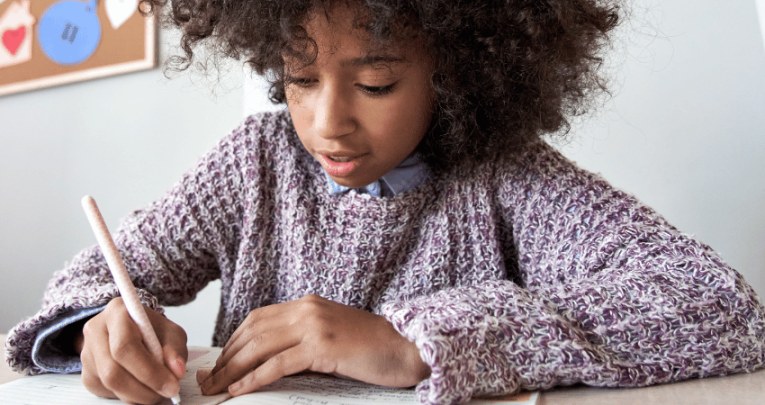
Get pupils into the scribbling spirit with these ideas for the classroom and after-school clubs…

Get children excited about creative writing and use it to get to know your students better with this advice from teachers and education experts…
Use creative writing to get to know your pupils
How to run your own creative writing club, creative writing year 6 project.
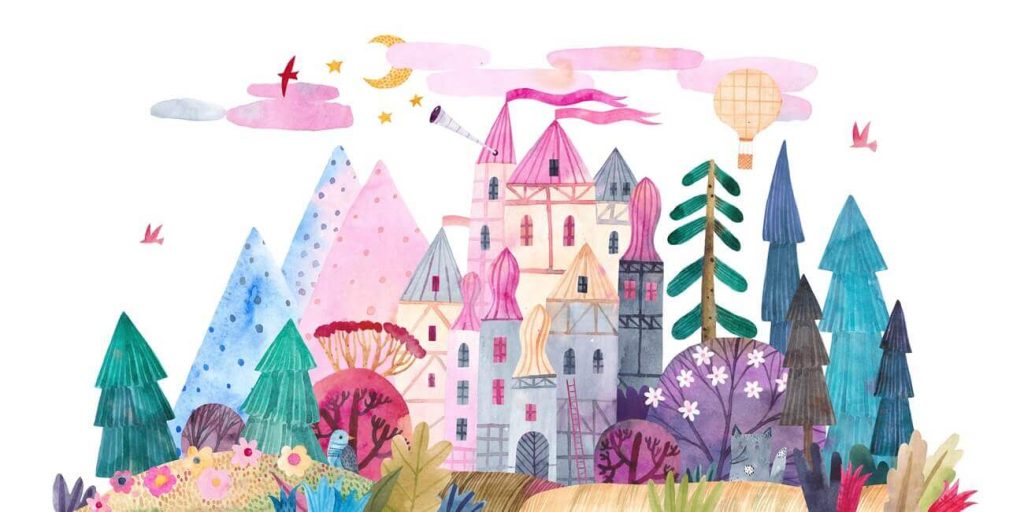
Want to learn more about your class? Just let them write, says teacher Simon Hunt…
It’s remarkable what you can discover as a teacher when children have the freedom to express themselves in their writing.
At the beginning of term, I use creative writing to understand where a child is academically and to help me get to know all the children in my class.
Why not just give them a test, you ask? Well, you can learn a surprising amount about a child from a piece of their creative writing.
Interests and passions
The choice of topics and themes in their writing can unveil children’s interests and passions, which is an incredibly valuable thing to know. Whether it’s street dance, football or dogs, you can use this knowledge to help spark their interest in maths, science, or any other subject by tailoring examples to suit them.
Emotional expression
Creative writing also provides an avenue for children to express their emotions and thoughts, which will allow you to understand more about their feelings and concerns. It can unveil a child’s depth of insight and emotional intelligence that they may be hesitant to express verbally. This will really help you choose the right support for them through the school year.
Confidence and oracy
Reading aloud is an important part of writing stories, as it gives children the opportunity to practise their oracy skills: pitch, tone, and intonation. And, vitally, hearing them read out loud will allow you to baseline their reading fluency. Presenting their writing to an audience can be very intimidating though, so should be handled sensitively.
Some children naturally have quieter voices and may avoid volunteering to read aloud, as they are aware that not everyone can hear them. In class, we have a pass-around microphone that children use when reading.
The microphone is connected to a speaker, meaning that everyone can hear them. The simple act of holding the microphone can significantly impact a child’s focus when reading aloud – often serving as a sort of comfort blanket, boosting their confidence.
Ultimately, the important thing to note is that stories are meant to be read and heard, and anything we can do to encourage that nurtures children’s literary and communication skills.
Imagination and creativity
Creative writing reveals a child’s imaginative abilities, giving insights into their capacity for original thinking and storytelling. It can be surprising to see the children that excel at this and can help to highlight an aspect of a child’s personality that might otherwise not have come to light until later in the term.
How to make it work
If we want children to be excited about creative writing, we have to be too, so think about how you introduce the lesson.
I often begin by telling my new class about how I felt about writing as a child. I loved reading books, but I struggled at school with spelling and grammar (in fact I still do).
Sharing how creative writing helped me overcome my fear of writing allows me to explain how I realised that what was important was the imagination and creativity I could bring to my story.
As a published children’s author, I show them the books I’ve written and connect them back to what I learnt at school. I hope this helps them to overcome their worries about spelling and grammar – I’ve found post pandemic that more children feel anxious about ‘getting things wrong’.
Of course SPAG is still incredibly important but in creative writing I really want them to tell me a good story.
There are so many ways to understand the children in your class and what makes them tick and, as teachers, we’re attuned to gathering this information from day one. However, I think creative writing is one of the best because it gives us the basics but also tells us so much more about the child.
Simon Hunt is a Year 3 & 4 teacher at an inclusive school in Greater Manchester and education consultant for 500 Words 2023, the UK’s most successful children’s story writing competition hosted on BBC Teach. He also advises on 500 Words Live Lesson, which you can watch online .
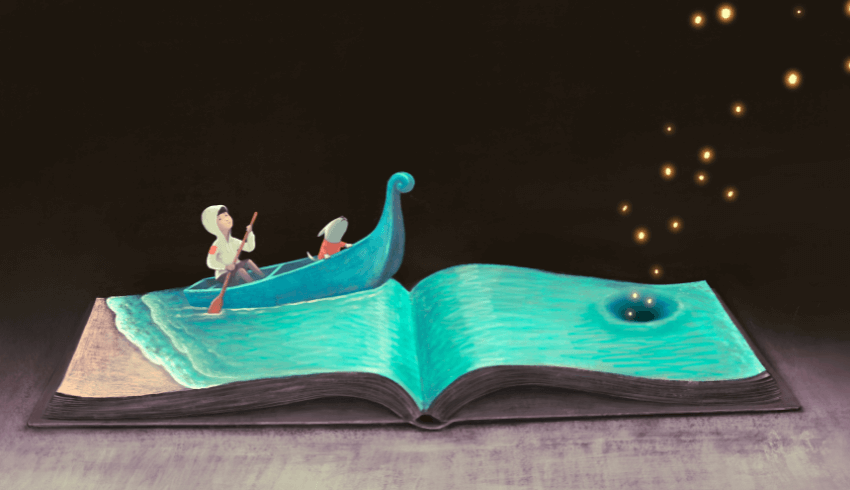
Would you rather fly, or be invisible? Explore endless impossibilities and get pupils into the scribbling spirit with these ideas…
If you could wish for one thing, knowing that it would definitely come true, what would it be? A million pounds? To fly? Talk to animals? Live in a tree house? Travel the world at the click of a finger?
I’ve asked this question hundreds of times to thousands of pupils, and their answers are always imaginative, normally well thought-out, and quite often, impossible .
I then follow it up with the question, “What if you could experience that thing right here, right now?” Cue eyes widening, ears pricking and backs straightening. “All you need is… a pencil.”
Creative writing club
Before becoming an author, I ran creative writing clubs in 30 schools a week for almost a decade. I hired over 100 tutors, won some awards, teamed up with publishers to arrange author events, and even had requests from teachers in Europe, Dubai and Australia asking to launch a club in their schools.
There were long waiting lists in almost every setting, and teachers, parents and librarians would ask on a weekly basis, “How have you turned that reluctant reader/writer into someone that actually wants to do more writing after school?”
Just another writer
The secret? First and foremost, I planned workshops that were FUN. I knew if I enjoyed running them, pupils would enjoy taking part.
I was just another writer in the room who talked about the books I was reading, collaborated on ideas, and asked for feedback on stories in the same way they asked me.
At this point I wasn’t a published author – just someone that loved to invent characters and write about fantastical, magical worlds.
I wrote alongside the students, making mistakes, scribbling over anything I didn’t like, and asking for help whenever I got stuck.
Everyone knew this was just ‘rough’ work. There was no pressure. No marking. No tests. And we didn’t have to share our ideas if we didn’t want to.
Jumping-off points
I genuinely looked forward to every single workshop I ran, and I know the students felt the same when they came racing into the classroom and didn’t want to leave at the end (yes, even the ones who ‘hated’ writing to begin with!).
Of course, I couldn’t rely on pupils simply coming up with new ideas each week for enjoyment. I had to provide them with inspiration, jumping-off points, and exciting writing hooks, too.
For this, I turned to the experts – children’s authors. I chose five ‘Authors of the Term’ that I knew would enthuse and inspire the students, and designed workshops around their books.
This was always a fun part of the process – I looked for books that had wide appeal, simple concepts, and an excitable element that made my inner child say ‘ oooh!’. Here are a few examples . . .
Writing for pleasure
I used Abi Elphinstone’s Rumblestar to write fast-paced adventure stories. We plotted our adventures on maps, devised the main action in ‘cloud planners’, and focused on exciting ‘world-crossing moments’ to start our stories.
At Halloween, I chose books like Guy Bass’ Stitch Head and Joseph Coelho’s Zombierella , and ended each workshop with a spooky storytelling session where we turned off the lights, closed the blinds, and sat on the floor as if we were gathered around a campfire!
The most successful workshops were the simplest. I used L.D. Lapinski’s Strangeworlds series and copied what happened to the protagonist when she jumped inside a suitcase and travelled to another world.
Pupils planned their new setting, focused on the five senses, and described the first thing they noticed when they arrived.
Their stories were thrilling, fast-paced, hugely descriptive, and completely individual, because they had the freedom to take their ideas in any direction they chose.
I normally scheduled two sessions around each book – the first session involved planning and starting stories (or poems / diary entries / letters, etc), and the second session involved extending, improving, or continuing them.
I also added one ‘paint a picture’ session (using images for inspiration) and ‘free writing’ at the end of each term to give pupils a chance to finish their favourite piece of work.
Remember, if you want to boost writing for pleasure, pupils should know that they can write about anything. Nothing is off limits, impossible or ‘wrong’.
And if you’re not sure how to start your first session, why not ask your pupils that if there was one thing they could wish for, knowing that it would definitely come true… what would it be?
Creative writing activities
1) distraction.
Beware: pupils love this game so much, they might ask to play it every week! The idea is simple. Children write for 10 minutes, in silence, and if they speak / laugh / stop writing for an extended period of time, they get a ‘strike’.
If a table gets three strikes, they risk not being allowed to read their work out. The twist? It’s your job to distract them!
Shake tables and shout ‘EARTHQUAAAAKE!’, steal their pens, use rulers as drumsticks, play songs they’ll want to sing along to, bust out the YMCA and get caught by a bemused headteacher.
Between the giggling and dancing in their seats, pupils will write so much in these 10 minutes, and it’s a great way to get them writing without overthinking.
2) Where am I?
Give students a setting (e.g. a library / the moon / horse stables / a rocket ship) and challenge them to describe it without saying where it is.
They should focus on the five senses. They must give at least three clues before the class can guess where it is, and the person who guesses correctly gets the next go.
The winner is the person who gets the most correct answers or the person that comes up with your favourite description.
3) Five-minute challenge
Tell pupils that most adults can write two lines in one minute, and then challenge them to write 10 lines in five!
Give constant time reminders, walk around the room shouting out ideas or words of encouragement, and watch their competitiveness soar.
This is a great game to play if, like me, you spend most of the lesson talking about books and story ideas, and realise there’s not much writing time left!
4) One-word game
This game is a great way to warm up imaginations at the start of a workshop. Ask pupils to stand behind their chairs and give them an opening line such as, ‘I was walking through the haunted castle when . . .’.
Walk (actually, it’s more of a run) around the room, pointing at each pupil in turn, and asking them to add one word to the story.
It must make sense and they have three seconds to answer. If they can’t think of a word, if it doesn’t make sense, or if they take too long, they are out and must sit down.
The winner is the last person standing. Note: when they get really good, try introducing a one-second hesitation rule – it’s hilarious!
5) What’s your problem?
Remind students that every story needs a problem to make it exciting.
Then ask them to stand behind their chairs and each give one problem like, ‘aliens invaded Earth’ or ‘I broke a fingernail’.
Problems can be big or small, but they must give an answer in three seconds, and they can’t repeat anything that’s already been said. The winner is the last person standing.
Mel Taylor-Bessent is the author of The Christmas Carrolls and the director of the award-winning educational website, Authorfy . See more of Mel’s work at meltaylorbessent.com . Browse more creative writing prompts .
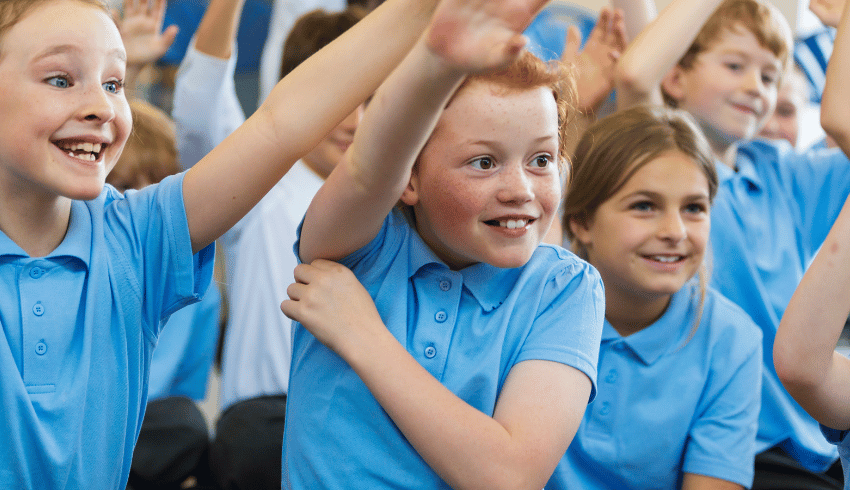
Combine twisting tongues and paperback publishing to produce an exciting writing project that allows pupils to make their very own book …
Have you ever tried to get your class excited about a writing exercise, only for them to pipe up with “But what’s the point?”.
We’ve all been there, and it can be incredibly frustrating when you don’t have an answer lined up.
Well, with this project, the outcome is both evident and impressive!
As part of a workshop, we decided to show children the amazing process of publishing, while adding in some humour, and – of course – essential literacy skills…
We visited Helen and her Y6 class for a morning, and explained to the children that we would do some writing that would lead to the publication of their very own paperback book.
We’d act as their agents, editors and publisher; they would have full control over all other aspects of the process.
The class settled on tongue twisters as our subject, and began by inviting children to try out some old favourites.
After much twisting of tongues and accompanying laughter, we showed the children probably the best-known English example: the one featuring Peter Piper. Most knew the first line but didn’t know there were three more:
Peter Piper picked a peck of pickled pepper.
A peck of pickled peppers Peter Piper picked.
If Peter Piper picked a peck of pickled peppers,
Where’s the peck of pickled peppers Peter Piper picked?
We challenged the class to compose 26 brand-new twisters, each following the alliteration pattern of that original but finding their own vocabulary.
Dictionary skills
Helen organised the class into pairs or threes, and each group was given two letters of the alphabet to work on, ensuring no group got two of the trickier letters.
Armed with dictionaries, the children got to work, and by breaktime had produced some impressively inventive twisters.
Here’s an example, cleverly coping with one particularly difficult letter:
Xavier Xmas x-rayed an extra-terrestrial xylophone.
An extra-terrestrial xylophone Xavier Xmas x-rayed.
If Xavier Xmas x-rayed an extra-terrestrial xylophone,
Where’s the extra-terrestrial xylophone Xavier Xmas x-rayed?
Although writing was the focus of the project, there were clear opportunities throughout for lots of worthwhile speaking and listening, too.
The pupils engaged in planning their tongue-twisters, and shared drafts in small groups.
Next, the groups came together to swap ideas and ask for opinions, and, finally, children read aloud their contributions and again asked for feedback.
Reading comprehension KS2
As the children worked, they giggled a lot, but the seriousness and concentration they brought to the task was impressive throughout.
The talk was easily focused, because, in National Curriculum terms, pupils were ‘discussing writing similar to that which they [were] planning to write’.
There was also a clear need for writers to read the original text very carefully, which was built into their discussion and planning for their own verses.
This focus was nicely balanced by the eager and sustained use of dictionaries and the need for creativity in their word-hunting, showing their ‘enjoyment and understanding of language, especially vocabulary’.
Throughout, the process was always collaborative; writers understood they were working towards a shared, larger whole, and to tight deadlines, with a clear need for some ‘speedy writing’!
Once drafts were complete, all the children had to do some editing, and lots of proofreading.
Paperback publishing
After breaktime, we explained that once we were gone, they, the writers, would be in charge. All 26 twisters must be typed up and emailed to us by the end of the week. For the book, they must write a blurb and an introduction, and choose a title.
We explained how easy and low-cost it is to self-publish; the only cost came with the ordering of actual copies and so they must settle on a price per copy and crucially decide how many they would like to order (sneaking in a bit of economics!).
The children listened with real attention to all this and asked a good number of questions after, showing a remarkably mature commitment to the task.
Helen reported that the children very much liked the novel approach to writing.
They enjoyed their shared creativity and loved being entrepreneurs, relishing the involvement and control they had over the tasks, the decision-making, and the purpose.
For that short time, they had turned their classroom into a genuine publishing house and experienced purposeful writing for a real-world outcome – we won’t soon forget the looks on their faces when they saw their books for the first time.
David Horner was a writer-in-schools for over twenty years. Mike Jackson is a former primary school headteacher.
Sign up to our newsletter
You'll also receive regular updates from Teachwire with free lesson plans, great new teaching ideas, offers and more. (You can unsubscribe at any time.)
Which sectors are you interested in?
Early Years
Thank you for signing up to our emails!
You might also be interested in...
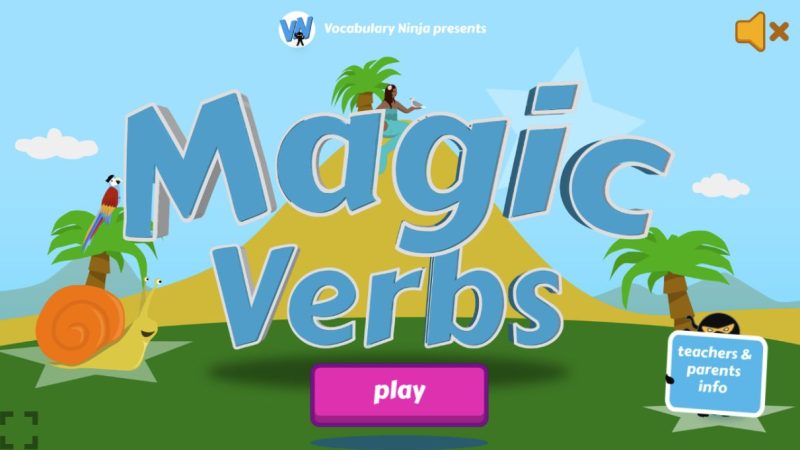
Why join Teachwire?
Get what you need to become a better teacher with unlimited access to exclusive free classroom resources and expert CPD downloads.
Exclusive classroom resource downloads
Free worksheets and lesson plans
CPD downloads, written by experts
Resource packs to supercharge your planning
Special web-only magazine editions
Educational podcasts & resources
Access to free literacy webinars
Newsletters and offers
Create free account
I would like to receive regular updates from Teachwire with free lesson plans, great new teaching ideas, offers and more. (You can unsubscribe at any time.)
By signing up you agree to our terms and conditions and privacy policy .
Already have an account? Log in here
Thanks, you're almost there
To help us show you teaching resources, downloads and more you’ll love, complete your profile below.
Welcome to Teachwire!
Set up your account.
Lorem ipsum dolor sit amet consectetur adipisicing elit. Commodi nulla quos inventore beatae tenetur.
Log in to Teachwire
Not registered with Teachwire? Sign up for free
Reset Password
Remembered your password? Login here

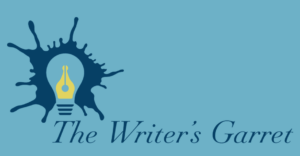
The Writer's Garret is dedicated to bringing readers, writers, and communities together under one roof and providing a safe refuge to explore new ideas, study old ones, and to create, create, create!
Fostering this dedication, The Writer's Garret partners with community organizations of all types to serve children of every background and life experience by offering specific programs, workshops and courses for kids.
Lead by diverse instructors, each course introduces students to the fact that they are writers with experiences and imaginations worth exploring. This exploration hones not only writing skills, but our students' abilities to think critically and communicate effectively. Our workshops are a hands-on experience with creative writing for every learning style , and the lessons don't begin simply with pencil, paper, and seated students. Students use their bodies, they draw, they listen to music, they paint: they engage the literary arts through all possible avenues.

Express Yourself
Express Yourself Youth Poetry is held at the Dallas Library where youth grades 2nd-12th from all around the city of Dallas are welcome to come learn at our poetry workshops. At the end of the year, the youth are allowed to submit their work into a competition where 60 finalist are selected to be published at the Dallas Library in a bound anthology.
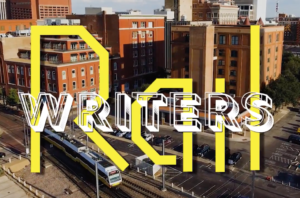
Rail Writers
Rail Writers takes participants on a journey of writing and exploration. In groups of 10-15, you’ll hop on the Dallas Area Rapid Transit (DART) light rail and travel to unique neighborhoods, museums and other exciting destinations. Guided by a teaching artist, you’ll explore your surroundings and record your experiences and impressions on the page.
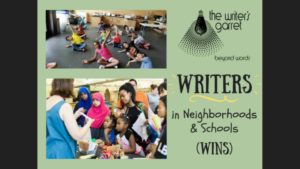
Writers in Neighborhood Schools
Our Writer’s in Neighborhood and Schools (WINS) Program places professional writers in schools, after-school programs, and community-based agencies to engage children, youth, educators, and families in creative writing classes, book clubs, poetry slams, zine camps, and more.
Be a Part of the Writer's Garret
- (65) 9646 0930

Home » Write and Shine
Creative Writing For Primary School
My eyes opened. the thoughts which i fell asleep with were the same ones lingering in my mind. i knew what i had to do., i knew i had to write and shine., primary 5 & 6 creative writing.
- Available on-site
– Composition Writing (with 20 Composition Topics covered) – Situational Writing
Almost there! Please complete this form and click submit below.

Wake up and smell the coffee!
With less than a year to go, are you aware of what you need to work on to bring your writing to the next level for PSLE? How are you going to secure the most number of marks for Paper 1?
The answer is simple: A structured programme that targets composition and Situational Writing.
Primary Creative Writing: Plan, Apply & Adapt
It is not just about writing a good composition. It is about satisfying the requirements in the most efficient manner. This is the truth most people don’t realise about creative writing for primary school students. Learn how to plan, apply key strategies and skills, and make story adaptations that will save you time and give you returns.

20 Composition Topics At Your Fingertips!
We are not only going deep with regular practice and skills but we are also going wide by covering *20 composition topics. With a new composition being written every fortnight, pupils will be consistently reinforcing the process of planning, applying and adapting. The result? Confident writers equipped with a bank of rich descriptions and story plots, all ready to write to their heart’s content by PSLE.
*The composition topics will not be a direct overlap with those covered in the P6 Achieve Programme.

Situational Writing is not a given. You need to earn that 15/15.
Just like how breakfast is complete with a good cup of coffee or juice, Paper 1 is complete only with Situational Writing too. We know the importance of these 15 marks and we want you to seize them.
How Do You Succeed in Writing?
While some seem to have a natural flair for and style in writing, many writers learn from the works of others and hone their skills through practice. However, it is equally important to consider what we are writing for and who our audience are. A great songwriter might not be able to produce a good novel simply because the requirements of the two types of writing are vastly different.
How does this relate to creative writing at primary school? Creative writing in primary school has its own set of requirements which need to be adhered to too. Being able to develop the creative writing piece with the given theme while displaying mastery in various writing techniques allows a young writers to be set apart from others. All these are to be done in a timed condition where having certainty and clarity in how you want to execute the writing will give you a sure advantage.
The good news is that success in creative writing in primary school can be attained. Whether you are already a confident writer looking to develop your repertoire of writing skills or someone aspiring to pick up the tools of creative writing to achieve your best, we believe in your ability to grow and make a difference.
How Your Child Will Benefit
Have a clear structure for composition and Situational Writing
Equipped with a rich bank of descriptive phrases for composition writing
Equipped with a variety of writing skills (e.g. question breakdown, quick planning, adaptation of master plots etc.) and awareness to apply them
Individual feedback that highlights areas of strengths and actionable steps for areas to work on
Develop confidence and a love for English and its intricacies

What Makes LBM Creative Writing Classes Different From Other Centres’?
How do you know that learning has taken place? When you can teach it. Not only do our students demonstrate their understanding of the techniques and question types in the practices, but they also are given opportunities to explain questions to their peers.
On top of learning with thoughtfully crafted materials and in a nurturing environment, your child will walk out of our classroom, feeling empowered.

Specific strategies
for each section of the paper
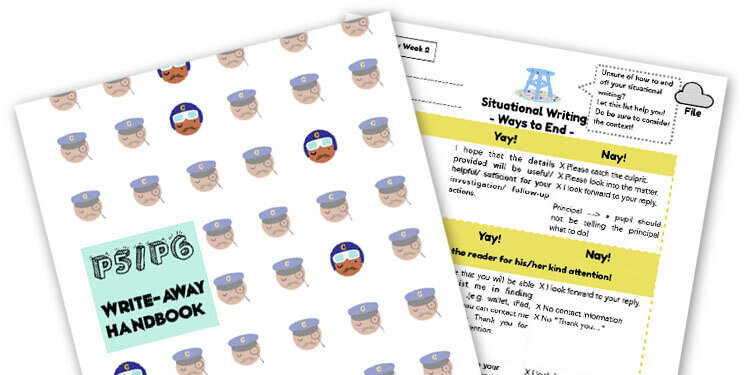
Regularly updated in-house curriculum
to align with MOE’s assessment formats
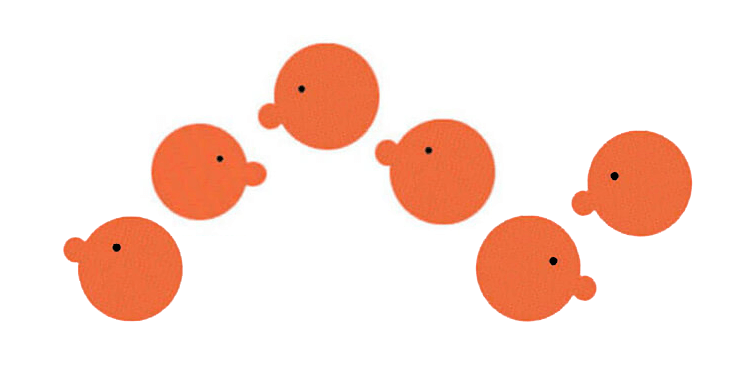
Collaborative learning setting
with small class size of 6

Direct line of communication
with teachers via our messaging app
Revise the techniques for writing to polish up your writing before the exams!
Choose from our locations and different timings available!

Here’s what parents have been sharing about us!
The greatest joy in giving small group tuition is a teacher’s ability to create greater impact in the children that have been entrusted to her care.
Our Programmes
- Primary English
- Secondary English
- Self-Paced Online Courses
- School Clients
- Copyright Terms & Conditions
- Personal Data Protection Policy
- Registration Terms & Conditions
- Contest Terms & Conditions
Lil’ but Mighty Clementi Block 432 Clementi Avenue 3, #01-282, Singapore 120432
Lil’ but Mighty Bukit Timah 170 Upper Bukit Timah Road, #B2-02 Bukit Timah Shopping Centre, Singapore 588179
Lil’ but Mighty Hougang Block 211 Hougang Street 21, #01-305 (Back entrance), Singapore 530211
Lil’ but Mighty Novena 1 Goldhill Plaza, #02-25, Singapore 308899
Lil’ but Mighty Marine Parade 1 Marine Parade, #04-05 Parkway Centre, Singapore 449408
Lil’ but Mighty Tampines 3 Tampines Central 1, #06-03 Tampines Plaza 1, Singapore 529540
- Benefits for children
- Animated Learning videos
- Enrol your child
- What we offer
- Testimonials
- Our happy students
- Frequently Asked Questions
- Artsmark Schools

- develop their creative writing skills
- increase their confidence in writing
- use writing to explore and convey emotions
- developing a genuine love of literacy, independent of tests and exams
- know that writing can be fun!
E-learn Writing Course
Now launched.
We are very excited to announce the launch of our online creative writing workshops. Please click on the link below to find out more
Free learning learning videos to watch
Course content, welcome to game of stories, listen to me before you start, what makes a good story, characterisation, bringing it all together, the course includes, if your school is not listed below, please contact us, past events.

Our creative writing workshops
Through our creative writing workshops, we provide a high energy, fun and nurturing environment for children to explore their imagination and express themselves in written form. Our workshop structure combine several years of experience as teachers, parents and authors to offer quality and stimulating workshops for your children. We keep our range of writing activities interesting and varied so that children keep coming back term after term!

How we do it
We partner with local schools and organisations to instil and develop a genuine love of writing in children, which we hope will stay with them for life. We carefully design our lesson plans around themes that would engage and intrigue children. We incorporate a range of learning styles to keep the children engaged. The link below provides some examples of what we cover in our workshops - please click the green icon below to find out more
Damisi is a writer and poet and has published several pieces of poetry and short stories in literary magazines.
Read More
Office Manager
Nuria has a degree in Business Studies and extensive experience in administration and marketing
We have been using Writing Champions as an after school club this half term and are extremely impressed. The children are really enjoying the club and the bubbling noise of excitement can be heard across the school! It is lovely to see so many children engaged in creative writing. We will definitely be using Writing Champions in the future. Ms Poynter, Literacy Lead Scotts Park Primary School
Taylor absolutely loves to write, especially short stories and your classes have helped enhance her vocabulary and creativity. Your classes have given her the confidence to share her short stories with family and friends, whereas before she felt her work wasn’t good enough. We all agree her expression, use of similes and content have greatly improved and it is a pleasure to read her work. Kelly Red Hill school
As a parent I have been really impressed by the careful planning and structured approach taken to the sessions. An outline of what will be covered in class is shared with parents at the beginning of term which is very helpful. The tutors are well engaged and always at hand to provide feedback at the end of the sessions. I also liked the certificate (or bookmark!) of achievement given to the children at the end of the term which makes them proud of the work they have done and the new skills learnt. La Fontaine School
My son was a reluctant writer and reluctant reader before attending the creative writing sessions. After a term at Writing Champions, I have seen his interest in reading improve. He has even spontaneously picked up a pen and paper to write his own stories! Mrs Rana La Fontaine School
My child really enjoys Writing Champions. She comes home enthusiastic about the sessions and having produced some wonderfully imaginative stories in various styles. I can really see the progress she is making and confidence growing. I also appreciate the easy and efficient online booking system and the clear communications from Writing Champions. Fay La Fontaine School
Writing Champions have been running a creative writing club at our school now for two terms and it has been a very positive experience for all involved. The club is well organised and run by engaging staff members. The school has not had to be involved with any of the club admin and can fully rely on the team to ensure that it runs smoothly each week. The children who have attended so far have been excited about attending the club and full of praise for Miles who runs our sessions. It has been lovely to see some of our less confident writers have the opportunity to express themselves through their creative writing and expand upon their own ideas week by week. Ms Harman, Literacy lead St Nicholas School
I really liked the sessions. The teacher was nice and supportive and was one of the best I ever had. The lessons were fun and imaginative. One of the best clubs I've ever been to. Eva, Year 5 John Ball Primary School
- 07535123723
- 07796921259
- [email protected]
Does my child need to bring anything to the writing class?
My school is not listed on your website. can i still register my child, is there a minimum age of child you accept, do you accept childcare vouchers.

- writing narratives about personal experiences and those of others (real and fictional)
- discussing and recording ideas
- noting and developing initial ideas, drawing on reading and research where necessary
- using other similar writing as models for their own
- assessing the effectiveness of their own and others’ writing.
- [email protected]
NEW VIDEO COURSE
Learn How to Write a Novel, Join Tom Bromley for a writing master class.
Learn How to Write a Novel
Join Tom Bromley for a writing master class and finish your first draft in 3 months.
43 Best Kids Creative Writing Classes in 2024
Showing 43 courses that match your search.
Elementary Writing: Animal Stories
Brave Writer
In this five-week course, each student will conceive and draft a short story of up to 1,200 words. We will begin with a triggering image and build from there, reading examples, working with myths and fairy tales, drafting and revising, and exploring how to begin and how to end.
Website: https://bravewriter.com/online-classes/writing-the-short-...
Categories: Kids
Start date:
April, 2024
Prerequisites: No prerequisites
Elementary Writing: Story Switcheroo
"Story Switcheroo" offers a whimsical 4-week family class for children aged 5-8. Instructed by Karen Edmisten, Jen Jackson-Ellery, and Starlita Kilpatrick, the course encourages creativity by reshaping favorite fairy tales. It's an excellent opportunity for kids to delve into imaginative writing and storytelling.
Website: https://bravewriter.com/online-classes/story-switcheroo
And Action— Screenwriting and Filmmaking for Ages 11-13
Lighthouse Writers Workshop
Do you want to bring the written word to life? Transform your imagination into captivating stories and master the art of cinematic storytelling by learning how to develop compelling characters, craft engaging plots, and structure screenplays for maximum impact.
Website: https://lighthousewriters.org/workshop/and-action%E2%80%9...
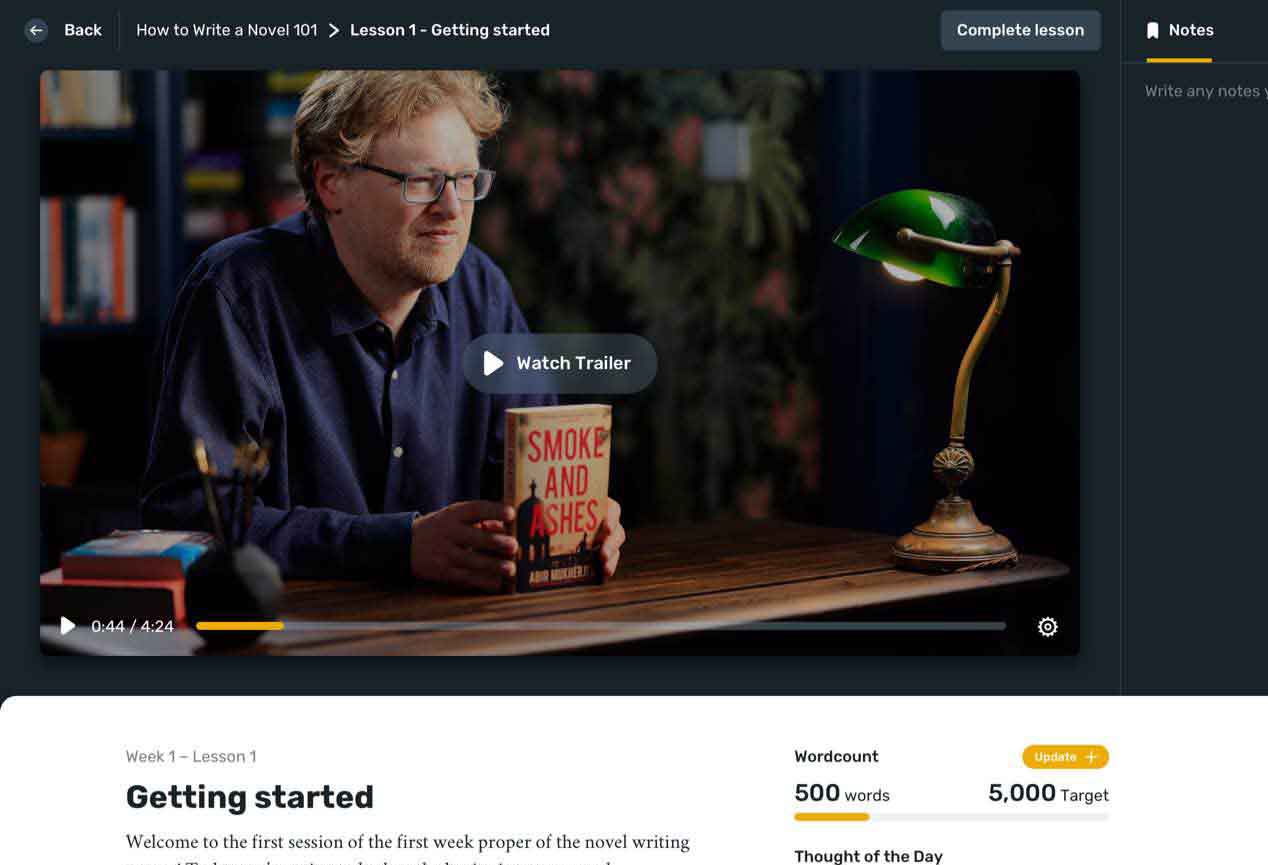
How to Write a Novel
Your story matters. Unlock your potential with daily video lessons from bestselling ghostwriter Tom Bromley, and finish your first draft in just 3 months. Learn more →
Wild, Weird, and Supernatural: Sci-Fi and Fantasy Camp For Ages 14-18
Let’s see how far our imaginations can take us! This workshop is for writers interested in genres within the speculative fiction umbrella. Genres that ask “what if?” are all welcome including sci-fi, fantasy, supernatural, horror, dystopian fiction, and surrealism.
Website: https://lighthousewriters.org/workshop/wild-weird-and-sup...
Poetry Meets Fiction for Ages 11-13
Do you love writing poems and fiction? In this camp, poetry and fiction intertwine to create captivating prose poems and bite-sized flash fiction. We'll examine the works of authors who masterfully blend these genres to weave tales that dance with lyrical beauty and narrative intrigue.
Website: https://lighthousewriters.org/workshop/poetry-meets-ficti...
Brave Writer 102: Learning to Revise
For parents struggling to help their children with writing, this course provides guidance on navigating the revision process. Learn how to offer constructive feedback without discouraging your child, balancing encouragement with practical writing advice.
Website: https://bravewriter.com/online-classes/brave-writer-102-l...
March, 2024
Prerequisites: Students are recommended to take Brave Writer 101 before this course.
Passion for Fiction
Passion for Fiction is designed for kids who can’t stop writing, or who are dying to write stories but would like a little guidance. This class is not for reluctant writers. It’s for the kids who fill their journals, write their stories, and imagine fantasies but have no audience.
Website: https://bravewriter.com/online-classes/passion-for-fiction
Open all year round
Prerequisites: For writers ages 11+ who have a foundation in the Brave Writer approach to writing.

Outdoor Adventure Writing with Jamie Siebrase
Denver Writes
Join Denver-based outdoors writer Jamie Siebrase for a three-hour “field” workshop at the Denver Audubon Kingery Nature Center near Chatfield State Park. In addition to reading and analyzing short nature writing samples, students will learn about creative nonfiction techniques such as point of view and concrete detail.
Website: http://www.denverwrites.org/workshops/
Nature Writing For Ages 11-13
Meet us at a nearby park and learn to write about our world in a way that is both informative and engaging. We will learn to observe nature closely, choose the right words to describe what you see, and craft essays, poems, and stories that will bring nature to life.
Website: https://lighthousewriters.org/workshop/nature-writing-age...
August, 2024
Adventures in Creative Writing
Kansas City Public Library
Tailored for middle and high school students, this course provides a foundational understanding of writing essentials. Students will explore character development, dialogue, imagery, structure, point of view, and the art of language selection. The course includes reading, analysis, discussion, and practical writing exercises to build these core skills.
Website: https://kclibrary.org/blog/library-launches-online-writin...
Developmental Writing
Tampa Day School
This program caters to middle and elementary school students, focusing on enhancing writing skills. It offers small group or one-to-one instruction, guiding students through organizing their thoughts and mastering the mechanics of writing. The course is unique for its hands-on approach, utilizing storyboards, graphic organizers, and computer-based programs. It emphasizes strategies for expository and narrative writing, enabling students to express their ideas more vividly and effectively. The program operates throughout the academic year and in summer.
Website: https://www.tampadayschool.com/tutoring-in-tampa/writing-...
Writing Children's Literature
Professional & Continuing Education
Explore the enchanting world of children's picture books in this 9-week online course. Ideal for those keen on writing for children, it covers the unique challenges of this genre, blending text and illustration. You'll learn about story structure, narrative voice, and the art of revising work. The course promises practical experience in drafting a picture book, requiring a weekly commitment of 7 to 9 hours.
Website: https://www.pce.uw.edu/courses/writing-childrens-literatu...
How to choose a creative writing class for kids
Looking to help a child build their writing skillset, learn more about the craft of writing, or finally finish that story they've been working on? You’re in the right place. That’s why we built this directory of the best creative writing courses.
However, creative writing classes aren’t one size fit all. If you’re planning to enroll your child in a creative writing class for kids, you’ll want to make sure that it matches what you’re seeking.
So make sure to consider the following questions when you’re researching kids writing courses:
- Who is the instructor? How many years of experience do they have in working with children?
- Is there something in particular you’d like your child to learn about writing? Does this course include it?
- How long is the course, and where is it taught?
- How much does the kids writing course cost? Does it fit into your budget?
More kids creative writing resources
Whether you’re a new or established author, there are always evergreen resources out there to how to help a kid get a headstart on writing.
Free online materials
- Creative Writing Prompts (resource)
- Book Title Generator (resource)
- Character Name Generator (resource)
- Plot Generator (resource)
- Short Stories (resource)
- How to Write a Novel (blog post)
- How to Edit a Book (blog post)
Recommended books
- For writers in the UK: Writers' & Artists' Yearbook
- For writers in the US: Writer’s Market 2020
Join a community of over 1 million authors
Reedsy is more than just a blog. Become a member today to discover how we can help you publish a beautiful book.

Save your shortlist
Enter your email address to save your shortlist so that you don't lose it!
By continuing, you will also receive Reedsy's weekly publishing tips and access to our free webinars.

We sent over your shortlist. Thank you for using Reedsy's Writing Courses Directory, happy publishing! 🙌
NEW REEDSY COURSE
Finish your book in three months

1 million authors trust the professionals on Reedsy. Come meet them.
Enter your email or get started with a social account:
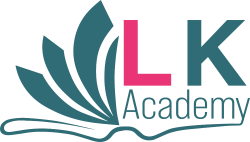
C reative Writing for Primary School
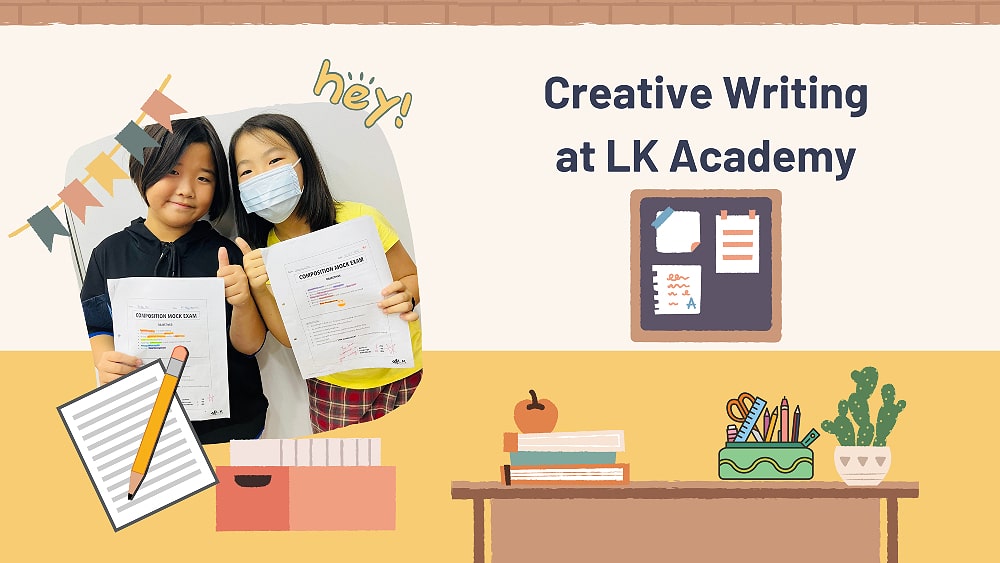
Why Learn Creative Writing for Primary School at LK Academy?
Creative writing for primary school is assessed through Composition Writing for the primary level. Meanwhile, secondary school creative writing is assessed through Essay Writing for the secondary level.
In LK Academy, Creative Writing skills start at the K2 level in our P1 Prep Programme at LoveKids, moving up to Primary One in our LK Academy Confidence for English Programme. The importance of planting the seed of inspiration in our young students is the first step to building the foundation of creative writing skills. Enrol your child in our Creative Writing for Primary School Programme today!
Creative Writing for Primary School at P1 and P2 levels
In our Primary One programme for Creative Writing for Primary School, we teach creative writing through plot development using the elements of drama to brainstorm a plot. This makes creative writing and composition writing fun and therefore builds interest and inspiration in writing.
Another example would be using visual learning elements and illustrations in Creative Writing for Primary School to draw out the story mountain. This creative writing methodology helps our lower primary students engage in different writing styles. Our objectives are met - Children are inspired and love writing.
The elements of Creative Writing for Primary School taught in LK Academy work on this methodology.
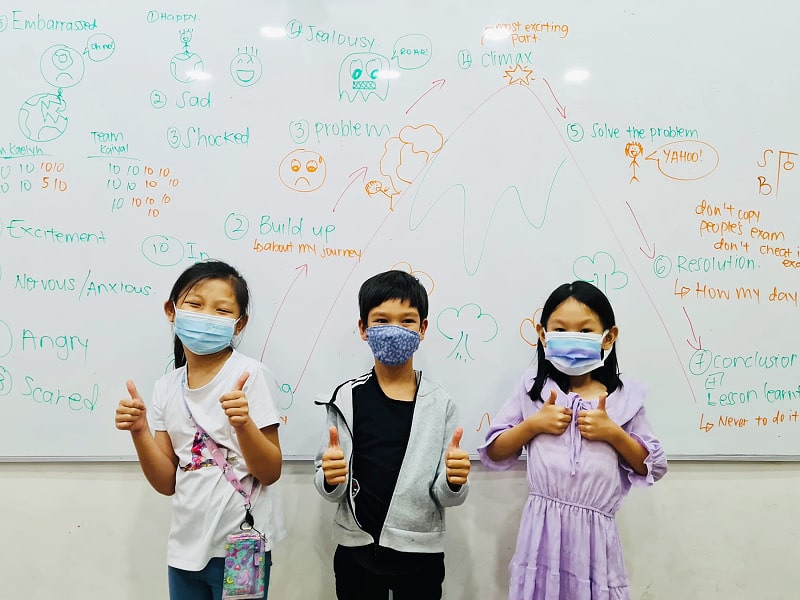
2. Font size
To find out more about web accessibility, and the accessibility features of this site, please visit our web accessibility page .

- For Teachers
- For Cultural Partners
- Search for:
Culturepool is brought to you by the Liverpool Cultural Education Partnership
Creative Writing Workshops for Primary Schools – #LiverpoolWrites

As part of Liverpool’s Year of Writing (#LiverpoolWrites), author Jude Lennon has designed workshops to inspire pupils to find the joy in writing. The emphasis is on creativity, imagination, expression and writing for pleasure. Pupils will be freed from the constraints of SPAG and encouraged to find their voice and write freely.
You can book Jude to facilitate a workshop in school herself for £250; or you can link to the FREE 21-minute YouTube video for instructions about how to run the workshop, using the accompanying resources. Just click on the Booking/resource URL button (above right) to access these. Scroll down and click on ‘SHOW MORE’ to be able to download the resources.
The sessions will enable children to focus on the things they wish to write about. They will learn about four key elements of creative writing and use these to inform their own choices. These four elements include – themes, characters, settings and the curveball. Each element will enable the children to explore and find inspiration. They will have full control over the four elements they wish to include in their writing thus allowing them the freedom to express themselves.
There will be opportunities for discussion, collaboration and independent thought. Pupils will also be encouraged to share their writing throughout the session (if they wish).
This site uses Akismet to reduce spam. Learn how your comment data is processed .
Information
Organisation:
Jude Lennon Author (Little Lamb Tales)
Contact name:
Jude Lennon
Contact email:
07745522872
Type of offer:
Digital/online activity or resource Visit into school
£250 for workshop with Jude; YouTube session & resources are FREE
Session length:
Nature of activity or art form:
Hands on Creative Writing
Subject or curriculum focus:
Outcomes for children & young people:
Improved mental health and wellbeing Raised aspirations Raised attainment Social skills Learning about equality and diversity
A brief video resource with additional print out resources is available for schools to access for free. If schools wish to book a half day workshop please get in touch: [email protected]

Online Creative Writing Classes for Kids
🎥 Engaging live video chat classes
🥇 Vetted and passionate teachers
✍️ Practice writing through fun prompts
Top rated Creative Writing classes
College preparation writing for high school--semester i: research and writing basics.
Russian Language Tutoring. Grammar, Reading, Writing, Pronunciation. All Ages
I Can Write Well! A Six-Week Writing Program
Mastering the Five Paragraph Essay: Middle School Writing Pt. I
Master High School Essay Writing (Full-curriculum Semester Course)
Yale Graduate Hosts (Four) Writing Tutoring Sessions
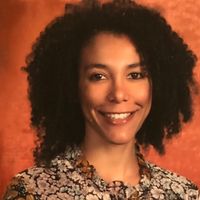
Essay Writing Foundations: The Most Critical Skills
Be You & Become a Better Writer: Creative Narrative Story Writing, 8-Week Course
High School Literature 1: Reading, Comprehension, Writing, & Literary Analysis
Let Me Help-Tutoring for Reading, Writing, English, or Math 1:1 (Certified Kg-6)
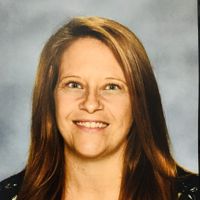
Writing for Middle Schoolers- (IEW Units 1-5 Level B)
Mastering Five Paragraph Essay Writing for Middle School
Writing for Middle Schoolers (IEW Units 6-9 Level B)

Writing the IEW Way: A Semester Long Writing Course for Reluctant Writers
Junior Writers - Learn and Practice Writing Short Response Essays
Essentials of Writing: Writing Structure and Essays
Creative Writing: Character Building and Story Development (Age 10-14)
The Complete Writing Experience: The Writing Revolution Workshop
Wings of Fire: Creative Writing Camp
Summer Camp: Write a Chapter Book or Book of Stories
Reviews for top Creative Writing classes
Parent submitted images.
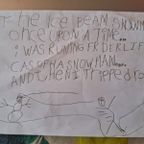
Reviews for Creative Writing classes
Creative writing clubs
Creative writing club.
Creative Writing Club for Young Writers
Fantasy writing
Fantasy writing workshop (ongoing) - novels, short stories, etc..
The Epic Scifi and Fantasy Writing Masterclass: Ongoing Creative Writing Class
Fantasy Writing: Weekly Creative Prompt
Story writing
Minecraft story writing.
Scary Story Writing Club

5 Week Story Writing
Creative writing tutors
Creative writing tutoring.

One-on-One Creative Writing Tutoring
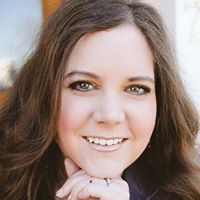
1:1 Creative Writing Unleashed
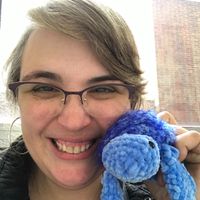
Find more classes
Popular searches, poetry writing, senior seminar: build a poetry writing portfolio (flex).
Be You & Become a Better Writer: Poetry Writing, 8-Week Course

Pride Poetry: Writing Identity Poems for LGBTQIA+ Teens
Novel writing
Novel writing flex 20 weeks.

Novel Writing Club (Preteen Authors)
30 Day Novel Writing FLEX

Watch your kids gain creative writing skills and confidence
Help your child develop their imagination and creativity while growing their interest in writing and ability to express their thoughts.
Recommended articles
Explore more in creative writing
Explore more in writing, explore more in english, financial assistance , outschool international , get the app .
More to Explore
Classes by age , classes by grade .

Will you share your cookies?
We use cookies to make our site better. Some cookies are necessary, but having extra cookies lets us personalize your experience. Read our cookie policy.
- #15468 (no title)
- As Creatives – Creative Learning for Creative Classrooms
- As Creatives Connect – Creative Learning for Creative Classrooms
- Big Maths Days – Maths Activity Days for Secondary Schools
- Book Week Scotland 2024 – School Workshops
- British Science Week 2024 – Science Workshops for Primary and Secondary Schools
- Creative CPD and INSETs for Teachers
- Creative Literacy Programmes for Primary Schools
- Creative Literacy Workshops for Primary Schools in Scotland – Author Visits, Workshops & Assemblies
- Creative Literacy Workshops for Secondary Schools – Workshops & Assemblies
- Creative Maths Workshops for Primary Schools
- CSI: Maths and Literacy Workshops for Primary and Secondary Schools
- Designed Resources
- Family Maths Workshops – A Creative Approach to Securing Parental Support for Maths Priorities
- History Workshops and Shows for Primary Schools
- Holocaust Memorial Day School Workshops
- International Women’s Day – School Workshops
- Learning Outside the Classroom CPD – Outdoor Learning INSET
- Learning Outside the Classroom Workshops – Outdoor Learning
- Literacy Workshops for Secondary Schools in Scotland
- Literacy Workshops Ireland – School Character Workshops and Visits to Support the Literacy Curriculum
- Maths Workshops for Primary Schools in Scotland
- Maths Workshops for Secondary Schools – Creative Maths Workshops for KS3 / KS4 – S1 / S5
- Maths Workshops for Secondary Schools in Ireland
- Maths Workshops for Secondary Schools in Scotland – Maths Week Scotland
- Maths Workshops for Special Schools
- Maths Workshops Primary Schools in Ireland
- National Collaborative Outreach Programme – Live Webinars, Digital Packages and Resource Packs
- National Storytelling Week 2024 – School Workshops
- Outdoor Maths Trail – Outdoor Maths Resource – Now Available to Buy
- Poetry Workshops, Visits and Assemblies for Schools – National Poetry Day
- Recovery Education – Catch Up Premium Funding – Workshops and Programmes
- Refugee Week – School Workshops
- School Arts Week Workshops
- Enterprise Education – School Workshops
- Events and Key Dates
- Learning Outside the Classroom
- International Schools
- Science Workshops for Primary Schools – British Science Week 2024
- Science Workshops for Primary Schools in Scotland – British Science Week 2024
- Science Workshops for Schools in Ireland
- Science Workshops for Secondary Schools – Creative Science Workshops for KS3 and KS4
- Shakespeare Workshops for Schools – KS1/KS2/KS3/KS4 – The Play’s The Thing!
- Summer School Catch Up Programmes – School Catch Up Workshops & Programmes
- Teaching Resources
- Trainee Teacher Courses and Universities
- Whole School Maths Day – Whole School Maths Challenges
- World Book Day 2024 – Whole-School Workshops
- World Space Week 2024 – Space Workshops for Schools, Activities and Assemblies for World Space Week
- World War One Schools Play and Workshops – Living with the War
- Year 6 Transition Workshops for Primary Schools
- What People Say
- Case Studies
- Teacher CPD
- Accessibility
- Privacy Policy
- Terms and Conditions
- Outdoor Learning
- Outreach Programmes
- Festivals and Events

We love the power of words, so we've got a whole range of enjoyable and engaging Poetry workshops - for pupils of all ages to enjoy. Our workshops include in-person sessions , as well as live streamed workshops beamed straight into your classroom.
Longer workshops will also see pupils gaining experience in presentation skills as we support them in exploring the most effective ways to deliver their poems vocally. We can also provide a Poetry assembly to kick-start your poetry day in school! Our poetry workshops are available throughout the school year - and can be adapted to suit any theme or text, connecting literacy right across the curriculum.
N ational Poetry Day is the annual mass celebration on the first Thursday of October that encourages all to enjoy, discover and share poetry. Year on year, our National Poetry Day programmes prove popular and successful right across the country . Our workshops are also available all year round!
Remember - every poem has to start somewhere. So start yours now – and get in touch today!
“ The girls at Glendower LOVED the workshops! - they enjoyed the workshops immensely and thought the facilitator was fantastic! - they gained confidence around poetry, in addition to understanding the freedom attached to the concept of creating their own poem. We can’t wait to have you back!" Glendower Prep School
“I wanted to take a moment to express our gratitude for your incredible delivery of National Poetry Day 2023. Your passion for poetry was clear, and every single one of the teachers spoke highly of you and your sessions. Similarly, the children were buzzing with excitement- I have received messages from parents about pupils’ enjoyment as well. It was a great day, and I look forward to your next visit." Thomson House School
"A huge thank you and reiterate how much we all enjoyed today! You were so inspirational and enthusiastic and the girls (and staff) absolutely loved the workshops. I am so impressed by the poems that the girls created and can’t thank you enough for teaching them the importance of Black History - I am the Diversity and Inclusion lead and so it was just music to my ears!" Surbiton High School
Refuge Rhymes Primary Schools
Refuge Rhymes comprises workshops in which pupils explore and use the poetic form of dramatic monologue to write persuasive, collaborative verses focusing on: Refuge for Animals (EYFS – Year 2/P1 – P3) … Refuge for Friends (Years 3 & 4/P4 & P5 … and Refuge for Strangers (Years 5 & 6/P6 & P7).
Refuge Rhymes can accommodate the whole of up to a two-form entry school in a single day, opening with an assembly at which a member of our team shares a favourite poem. If time allows, we can include a second assembly, too – during which classes perform their poems. It’s also possible, too, to deliver longer workshops to fewer classes – and these longer workshops would see children writing some of their own individual poems too. Whichever option you choose, though, we will send you designed and illustrated versions of all the work.
Refuge Rhymes Secondary Schools
Recent events across the world have made us all even more aware of the need to offer refuge to people less fortunate than ourselves. But more aware, too, of the charged atmosphere often surrounding the issue. Refuge Rhymes strips away the rhetoric in workshops seeing students exploring and using the poetic form of dramatic monologue to write persuasive, collaborative verses focusing on the raw humanity of the challenge.
Refuge Rhymes can accommodate up to 30 students at a time in workshops lasting from a single lesson, allowing a member of our team to work with a large number of students in just one day. It’s also possible, too, to deliver longer workshops to fewer groups – and these longer workshops would see students writing some of their own individual poems too. Whichever option you choose, though, we will send you designed and illustrated versions of all the work!
World Poetry Day 2024: Standing on the Shoulders of Giants
Celebrate the lives and achievements of some amazing British writers from diverse backgrounds through highly engaging workshops taking a very active approach to poetry - and culminating in new and original poems written by the pupils themselves! And with every year group looking at a different writer, your school will discover a whole new world of poetry! The writers we have selected include …
- Raymond Antrobus – winner of the 2019 Ted Hughes Award – and whose work is influenced by his experiences of deafness …
- Malorie Blackman – who was spurred to write after realising that none of the characters in the books she had read as a child looked like her …
- Levi Tafari – born in Liverpool, a performance poet who has worked within a wide range of music traditions – with partners from dance and drum band Delado to the Royal Liverpool Philharmonic Orchestra …
- Andrea Levy – proving that it’s never too late to write by publishing her first book at the age of thirty eight, sharing with the world some of the experiences of the Windrush Generation.
- Benjamin Zephaniah – a hugely influential poet who, despite his dyslexia, now has sixteen honorary doctorates, and is a Professor of Poetry and Creative Writing!
- Rupinder Kaur – mixing influences from her family’s heritage in the Punjab with her experiences as a 21 st century British Asian woman to create something entirely new.
Poetry Live - J oin one of our team for live workshops, beamed straight to the classroom! (Streamed Workshop)
These workshops last up to an hour at a time – and, as they can lead to poems on any subject of your choice, they provide a fantastic way of linking poetry to other areas of the curriculum! After being introduced to one of our favourite poems and the subject of theirs, pupils will be guided through a drama activity designed to support them in developing their ideas. Experimenting with rhyme, rhythm and pace, they’ll then get the opportunity to choose how to populate their own verses, writing and performing them.
“I wanted to email to thank you for today's inspiring (streamed) workshops. The pupils were all fully engaged through your scientific knowledge and your inclusive poetry collaboration which was both fun and successful. This term I run a poetry club for Year 5 and in today's session we used a random object generator to choose a subject about which to write a clerihew to follow up from your workshop." Clifton High School
“I just wanted to say a huge thank you to Jo for delivering such fantastic, fun and engaging (Poetry) sessions with our children. Jo, you have such a warm, positive manner with the children and they were all engaged and inspired! What a lovely way to end the term and this time learning remotely." Beechwood Prep
A Celebration in Rhyme (primary)
Working with up to 420 children to create and perform a School Poem in just one day!
A celebration in Rhyme has been developed to help celebrate the stories your pupils love in verse - by writing and performing a collaborative School Poem in just a single day! After a quick assembly sharing our love of poetry and issuing the overall challenge, children will participate in collaborative writing workshops, usually for a year group at a time. Using our unique “RunAround” methodology, KS2 classes will choose the themes and content, creating the lines as they go - with EYFS and KS1 providing the chorus. And the outcome? A beautifully crafted poem extolling the wonder of stories that’s unique to your school - and that will get its very first performance at a second, celebratory assembly at the end of the day!
"Thank you so much - it was lovely to work with you. The children all had a wonderful day. According to one of mine it was the BEST day EVER!" Braywood CE First School (Virtual Poetry workshops)
"All year groups really enjoyed the practical elements of the workshops and being able to discuss their favourite books, authors and characters. Children were able to recap on their knowledge of poetry and rhyming couplets as well as celebrating the joy of reading. Thank you very much!" A Celebration in Rhyme Poetry Workshop, St Mary & St John Catholic Primary School
Soundscape Poetry - (primary & secondary)
Those pupils who claim they don’t like poetry will be writing furiously at the end of this magical poetry workshop. Realising the power of “sound”, they’ll design and perform two contrasting soundscapes, working to topics/themes of your choice, and making their own compositional choices. We’ll then guide them through a structure supporting them in crafting richly descriptive poems that tell both individual and collective stories in which the writers’ choices are central.
Exploring ( according to age ): onomatopoeia, alliteration, descriptive writing, contrasts, rhythm, tone, pace.
Duration: Soundscape Poetry is suitable for up to 30 students at a time and requires a minimum of 60 minutes (although we always prefer longer!).
"Each class thoroughly enjoyed the poetry workshops and enjoyed taking an active role in order to create their ideas. Using drama to create an orchestra of sounds for our soundscape poems was fantastic to see and I know that we plan to use this strategy with the children again! Thank you for inspiring the children, so they could create such wonderful ideas!" (Amy Wynn, Windsor CP School)
"The immersion aspect was particularly effective in engaging the pupils and this led to high standards of written poetry. All teachers were full of praise for the workshops and were delighted with the pupil outcomes and engagement. We would love to arrange another visit for next year!" (Head of English, Immanuel and St Andrews School)
Personification Poetry - (primary & secondary)
What if Stonehenge could tell us all it has seen over the millennia – and all it has heard, too? What if your school gates could share with us all the comings and goings they have seen for years? And what about that well-thumbed book on the library shelf? This highly imaginative and interactive workshop allows students to harvest the fruits of both their own and their classmates’ imaginations as they explore notions of empathy to construct some uniquely moving poetry.
Suitable for: EYFS – KS4 / P1 - S5
Exploring ( according to age ): empathy, personification, subtext, descriptive writing, contrasts, rhythm, tone, pace.
Duration: Suitable for up to 30 pupils at a time, Personification Poetry requires a minimum of 60 minutes (although we always prefer longer!).
"The boys all stayed engaged and doing their actions. I did tell Jo at the end how impressed I was since it was virtual and I thought might be more limited. And the boys seem to have really taken to the story. Thanks thanks for giving our WBD a much needed lift!" The Hall School
"A massive ‘Thank You’ for the Workshops last week. The pupils had a great time and it was wonderful learning about these less well known scientists and inventors. We will look forward to receiving our poems! We will be in touch regarding next year’s dates." Surbiton High Girls’ Prep School
The Poet-Tree – Poems that Grow and Change Before Your Eyes (primary & secondary)
Every tree starts as a seed – a seed that germinates and flourishes. And every poem starts with an idea – an idea that becomes visible to all as it finds its form in words. In both cases, the journey to fruition is one of organic change. And while neither topiarist nor poet can know what the final outcome will be until it’s there in all its glory, they both shape and prune their creations carefully. This enchanting workshop supports children and young people in appreciating how a poem evolves from the pen of its writer – and offers them scaffolds allowing ideas and words to take root and grow. We’ll provide them with stimuli to start the process off, enable them to think structurally as they begin to piece their poems together – and emphasise the role that “choice” plays in poetry as they select the words, phrases, similes, metaphors and personifications that best suit their needs
Suitable for: KS1 – KS3 / P2 - S3
Duration: 60minutes – half a day
Exploring (according to age): descriptive writing, connection-making, simile, metaphor, poetic structure.
“The poems look amazing and I am really excited to send these home with the children who took part in the workshop. The day was a huge success and all of the pupils have commented how fantastic it was. Similarly, the teachers really enjoyed the CPD. Thank you again for such a wonderful experience.” (Mapledene School)
Shakespearean Clerihews – (primary & secondary)
With many of Shakespeare’s characters, it’s definitely not a case of “what you see is what you get”. So this engaging activity puts them centre stage by bringing out both the visible and the invisible. Macbeth plays the role of the loyal subject – but inside he’s a mass of seething ambition. Miranda’s not quite the innocent she lets her father Prospero think she is – while the real Bottom is far from the conceited bombast we first meet! Juliet's dreams of romance end up in tragedy – and Bottom simply doesn't know what the truth is when Titania seems to fall in love with him! This experiential workshop uses drama techniques to introduce students to characters from a play of your choice, supports them in crafting Clerihews– four line, descriptive, rhyming poems, packed with descriptive language.
Suitable for: KS2 – KS4 / P4 - S5
Exploring (according to age): Shakespeare’s plays, characters and characterisation, poetic structure.
"I’d like to say a huge thank you to Jackson for his delivery of our Shakespeare poetry workshop…the students have really enjoyed learning about Shakespeare in a very active way. All members of staff were very impressed with Jackson and have all commented on how they cannot wait to use some of the techniques to inform their future practice. I’m sure we will be looking to work with you again in the future.” (Creative Curriculum Leader, Guardian Angels Catholic Primary School)
Cinquains of Truth – People Whose Choices Shaped the World (primary & secondary)
Progress towards equality in a diverse world has been made possible by people who made choices that, while sometimes causing personal difficulties, led brighter futures for the rest of us. People like the Bristol Bus Strikers (1963), Tommie Smith (the 1968 Mexico Olympics) and Doreen Lawrence (1993 onwards). The often difficult choices taken by such people changed and shaped the world – and this inspiring workshop celebrates their deeds and legacies through poetry. After engaging pupils in a range of drama-based activities to explore the people and events in question, we’ll introduce them to poetic structures including clerihews and cinquains in which to commemorate their feats.
Exploring ( according to age ): epic poetry, poetic structures, alliteration, contrasts, rhythm, tone, pace.
Duration: Standing up for Freedom is suitable for up to 30 students at a time and requires a minimum of 60 minutes (although we always prefer longer!).
"Thank you so much for the fabulous workshop this morning. The children really engaged with it and seemed keen to share their ideas with you. It’s given us all lots of food for thought!” Clifton High School
Performance Poetry: Rhythm, Rhyme and Action - (primary)
A magical route to seeing how poems can be changed and transformed through choral speaking
Some of the best poems written have quite simple messages at their heart – while the power of those messages can be dramatically magnified when they are delivered chorally. This highly engaging workshop sees a group of disparate pupils magically transformed into a chorus, speaking and performing an age-appropriate verse.
Suitable for: EYFS – KS1 / P3 - S3
Exploring: rhyme, rhythm, tone, pace, performance skills
Duration: Suitable for up to 30 pupils at a time, Performance Poetry requires a minimum of 30 minutes – but can also be combined with Collaborative Poetry for a one-hour session.
Messages from Space - (primary & secondary)
What do we know about Neptune? What’s the science of Saturn? And how is our understanding of Uranus? After a warm-up activity exploring some of the characteristics of a range of inhabitants of the universe (including stars and comets as well as planets and black holes), and armed with our FactFiles, pupils will mix metaphors, similes and astronomy as they create - and perform - their own Cosmic Clerihews! These are fun but descriptive four-line poems – and so perfectly suited for the descriptive rigour demanded by science.
Suitable For: KS1 – KS4 / P1 - P7.
Exploring: characteristics of planets, stars, comets and black holes; authorial voice, rhythm, tone and pace.
Duration: Suitable for up to 30 pupils at a time, Messages from Space lasts from 1 to 2 hours, depending on how many classes we’re working with.
Collaborative Poetry - (primary & secondary)
Seeing at first hand how poems change at the hands of their poets Poetry is all about making choices – about words, about rhymes, about metres. This exciting workshop allows a whole class of EYFS or KS1 pupils to make choices together as they create and perform a collaborative class poem on a theme of your (or their) choice.
Suitable for: EYFS – KS1 / P1 - P3
Duration: Suitable for up to 30 pupils at a time, Collaborative Poetry requires a minimum of 30 minutes – but can also be combined with Performance Poetry for a one hour session.
Get in touch
To find out more about our Poetry Workshops for Schools please contact us on 0151 708 8886 or email [email protected].
Find out more about National Poetry Day here
A decision to proclaim 21 March as World Poetry Day was adopted during UNESCO’s 30th session held in Paris in 1999. In celebrating World Poetry Day, March 21, UNESCO recognizes the unique ability of poetry to capture the creative spirit of the human mind. Find out more about World Poetry Day here
Related Workshops

Shakespeare Workshops for Schools
Our immersive approaches engage even the most reluctant pupils, offering them fun and exciting environments in which to enrich their knowledge and understanding of Shakespeare.
Find out more...

Creative Literacy for Primary Schools
Experiential, exciting and empowering, our imaginative and cross-curricular approaches to literacy harness tried and trusted approaches from the worlds of drama, visual art and creative writing.

World Book Day Workshops and Visits
Our Extraordinary World of Books workshops have been specially designed to help you and your pupils celebrate this special anniversary by bringing your favourite books to life.
Share this:
You must be logged in to post a comment.
ENROLL DONATE
- Who We Serve
- Program Logic Model
- Culture Statement
- Board of Directors
- Advisory Council
- Join the Team!
- Get Involved
What's Hot?
- WRITOPIA SPEAKS
- Creative Writing
- Essay Writing
- College Essay
- Role-Playing Games
- Debate Team
- Private Sessions & Workshops
- Specialty Genres, Events, and More
- Sleepaway Camps
- School Year
- Writopia Publishing Lab
- Worldwide Plays Festival
- Scholastic Writing Awards
- Youth Essay Conference
- Family Memoir
- Writopia Lab Salon
- Teen Intensives
- Professional Development
- Upcoming Events
- Westchester
- Program Schedules
- For Students
- For Parents
- For Educators
Advanced Writing Exploration Program (AWE)
Summer 2024 programs.
The Advanced Writing Exploration Program invites rising 7th, 8th, and 9th-grade writers to be part of a community of dedicated, focused writers looking to explore their literary passions.
The program includes multi-genre workshops, as well as genre-specialized master class sessions. All workshops are student-driven and author-led, and writers will receive continuous feedback from their instructor and peers.
The program will prepare writers for Writopia’s popular and esteemed Creative Portfolio program for high schoolers.
This is an application-only program.
Price: $1290 Applicants can apply for need-based financial aid
Summer sessions include daily craft talks, writing exercises, and deep dives into different writing genres including poetry, memoir, playwriting, screenwriting, essay writing, fiction, comedy, and more. The session concludes with a reading and celebration.
Summer 2024 Date and Location Options:
- Upper West Side, Monday, July 29th to Wednesday, August 7th, 2024 1 PM to 4 PM ET
- Online, Monday, August 12th to Wednesday, August 21st, 2024 1 PM to 4 PM ET / 10 AM to 1 PM PT
Click here to apply for AWE!
School Year Programs
The Middle School Advanced Writing Exploration Program (AWE) invites 7th and 8th-grade writers to be part of a community of dedicated, focused writers looking to explore, expand, and deepen their literary passions. The program includes multi-genre workshops, as well as genre-specialized master class sessions. All workshops are student-driven and author-led, and writers will receive continuous feedback from their instructor and peers.
The AWE program also includes one private session in which the writer can focus on academic essay writing, admissions essays, or the creative genre of their choice.
The program will inspire and challenge middle school writers, as well as prepare them for Writopia’s popular and esteemed Creative Portfolio program for high schoolers.
This is an application-only program. We are currently accepting applications on a rolling basis.
Tuition: $645 (Limited financial aid available)
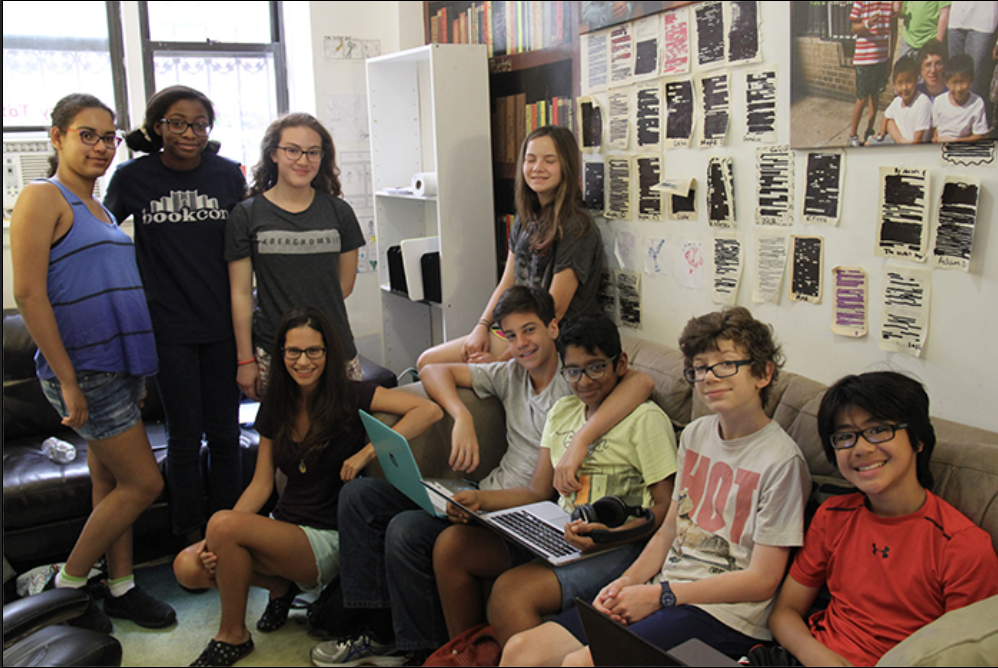
- Week 1: Multi-genre Workshop and Goal Setting
- Week 2: Multi-genre Workshop
- Week 3: Mystery and Horror Master Class Part 1
- Week 4: Mystery and Horror Master Class Part 2
- Week 5: Multi-genre Workshop
- Week 6: Screenwriting Master Class Part 1
- Week 7: Screenwriting Master Class Part 2
- Week 8: Multi-genre Workshop
- Week 9: Author visit and publishing discussion
- Week 10: Comedy Master Class Part 1
- Week 11: Comedy Master Class Part 2
- Week 12: Final Workshop and Celebration
- Tuesdays, 5:30 PM to 7:00 PM ET (Dates: Jan 10 through Apr 4)
- Wednesdays, 7 PM to 8:30 PM ET (Dates: Jan 11 through Apr 5)
- Upper West Side
- Sundays, 4 PM to 5:30 PM ET (Dates: Jan 8 through Apr 2)
- Mondays, 3:45 PM to 5:15 PM ET (Dates: Jan 9 through Apr 10)
- Tenleytown, DC
- Fridays, 3:45 PM to 5:15 PM ET (Dates: Jan 13 through Apr 7)
- Support Writopia Lab
- Teen Open Mics: Monthly in NYC!
- New Summer Program: Sports Writing
- Spring and Summer Enrollment are open!
Enroll Now!
Weekly Trimester-Long Workshops
Check out the Weekly Trimester-Long Schedule .
Holiday & School Break Workshops
Check out the Half-Day and Full-Day schedules.
Summer Workshops and Camps
Check out the Summer Schedule .
- Hispanoamérica
- Work at ArchDaily
- Terms of Use
- Privacy Policy
- Cookie Policy
Letovo Schoolcampus / atelier PRO

- Curated by Fernanda Castro
- Architects: atelier PRO
- Area Area of this architecture project Area: 39000 m²
- Year Completion year of this architecture project Year: 2018
- Photographs Photographs: NARODIZKIY , Dmitry Voinov , atelier PRO
- Interior Design : Atelier PRO , Thijs Klinkhamer
- Landscape Designer : Buro Sant en Co
- Client: Letovo
- Project Architects: Dorte Kristensen, Pascale Leistra, Karho Yeung
- Design Team: Thijs Klinkhamer, Abel de Raadt, Alessia Topolnyk
- Russian Co Architect: Atrium, Moscow
- City: Moscow
- Country: Russia
- Did you collaborate on this project?

Text description provided by the architects. The official grand opening of a special school, Letovo School , took place in Moscow last September. The assignment entailed a 20 hectare schoolcampus with educational facilities, student housing and school staff housing. The school campus offers extended outdoor sports facilities with a soccer stade, a running track, tennis courts and basketball courts. In addition there is a greenhouse, a treeyard and ample space for wandering and relaxation in the green.

While the architecture and interior of the school were designed by atelier PRO, the landscape design was developed by Buro Sant en Co landscape architecture. Russian firm Atrium Architectural Studio was responsible for the technical execution. In 2014 Atelier PRO had won the international design competition, the construction began mid-2016 and the campus was taken into use by mid-2018.

Letovo, a dream come true Letovo School is a special school for gifted and motivated children aged 12 to 17. The idea to create the school came from entrepreneur and philanthropist Vadim Moshkovich: ‘My dream was to offer talented children from all over the country access to high-quality education, regardless of their parents’ financial means. This school makes it possible for them to continue their studies at the 10 best universities in the country or at one of the top 50 universities in the world.’

Landscape-inspired design and shape Located in Novaya Moskva,southwest of Moscow ,the campus sits atop a beautiful plot of land that slopes down to a forest-lined river. Distinctive level variations were applied in and around the school to integrate the architecture into the landscape.

The shape of the large complex brings it down to a human scale for the children: the building appears to dance across the landscape due to its dynamic design. Due to the perspective effect one only ever sees part of the building's full size when walking around, which gives the impression of a refined scale. The building’s contours and flowing curves create surprising indoor and outdoor spaces as well.

The heart of the school: the central hub The central hub is the place where day-to-day life at the school unfolds. This flexible, transformable space will be used throughout the day as an informal meeting place. The dance studio on the ground floor can be transformed through a few simple adjustments into a theatre with a stage, a cosy living room or an auditorium that can accommodate 1,000 people for special events such as graduation ceremonies and large celebrations, as seen at the grand opening. This central hub connects the building’s three wings: the art wing, the south wing with science- and general-use rooms and the sports wing

Learning environment with a diversity in working spaces Letovo envisioned an innovative and modern take on existing education in Russia. In the spatial design, this perspective translates into space for theoretical education as well as special areas for group work and independent study in the tapered building wings. In the library wing there are silence spaces workshop spaces and a debating room. These are all supportive to the student’s personal development.

Sports programme In addition to the extended sports outdoor facilities, the indoor supply of sports facilities is substantial. These cover fitness rooms, martial arts rooms, a swimming pool, a small and a large sports hall. Around the sports hall there’s an indoor running track which can be used throughout the year. It is available to school staff and external users as well.

The interior, also designed by atelier PRO, is tailored to the aims of the ambitious programme. The design of the interior also focuses extensively on the various spaces where students can go to chill and meet up with friends. The extreme cold in this area makes the school’s indoor atmosphere important for relaxation.

Ambitous learning environment The Russian client has established a private, non-profit school which aims to be the most prestigious school in the country and to offer the best educational programme through a Russion and an IB (International Baccalaureate) curriculum. Students’ personal development is paramount, with the school adopting a holistic approach. It is a true learning environment that provides scope for a range of disciplines, areas of interest and recreational opportunities to foster children’s development. This aim is supported by the campus facilities and functions.

Project gallery

Project location
Address: zimenkovskaya street, sosenskoye settlement, moscow, russia.

Materials and Tags
- Sustainability
世界上最受欢迎的建筑网站现已推出你的母语版本!
想浏览archdaily中国吗, you've started following your first account, did you know.
You'll now receive updates based on what you follow! Personalize your stream and start following your favorite authors, offices and users.
Check the latest Desks
Check the latest Desk Accessories

Embassy of India School (Kendriya Vidyalaya), Moscow, Russia
भारतीय राजदूतावास स्कूल (केंद्रीय विद्यालय), मास्को, रूस.

Embassy of India School (KV) Moscow is a vibrant educational institution in Moscow catering to the educational needs of the wards of the Embassy of India personnel and community of Indian origin. The Ambassador of India to the Russian Federation, H.E. Mr. Pavan Kapoor is the Patron of the School. Ms. Gina Uika, Deputy Chief of Mission, is the Chairperson of the School Management Committee. The main objective of the School is to impart quality education of an international standard, together with developing the holistic personality of the child, to face the challenging needs of the ever changing society. Established in the year 1987, today the school has a strength of a little over 270 students with classes I to XII and has Science and Commerce streams. The school is affiliated to the Central Board of Secondary Education (C.B.S.E), New Delhi and follows the curriculum framed by NCERT, New Delhi, India.
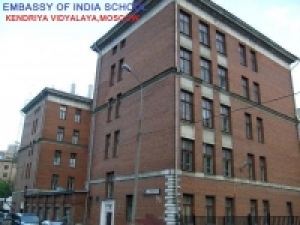
- Announcements
- Admission Notice for Class II to IX (Session 2024-25)
- Application form for admission for the session 2024-25
- Registration form to get registered for admission for the session 2024-25.
- Advertisement for admission to class -I for the session 2024-25
- Registration of Firms for the Session 2023-24 & 2024-25 (English & Russian). Last Date for Submitting the Expression of Interest for the services of Security Personnel is 15.02.2024 upto 02:00PM
- DATE SHEET FOR SESSION ENDING EXAMINATION FOR CLASSES VI TO IX AND XI
- DATE SHEET FOR PERIOD TEST 2 FOR CLASSES I TO IX AND XI
- Split-up syllabus Oct 2023-Mar 2024 for Primary Section Classes
- SPLIT-UP SYLLABUS XII 2023-24
- SPLIT-UP SYLLABUS XI 2023-24
- SPLIT-UP SYLLABUS CLASS X 2023-24
- SPLIT-UP SYLLABUS IX 2023-24
- Be Safe in Cyber World (for Teachers) Guidelines by CIET, NCERT
- Be Safe in Cyber World (for Students) Guidelines by CIET, NCERT
- Basics of Cyber Safety & Security Guidelines by CIET, NCERT
- Cyber Safety & Security(for Parents) Guidelines by CIET, NCERT
- A Handbook for Adolescents/Students on Cyber Security by MHA, Govt of India
- Revised Curriculum for the Academic Year 2023-24
- Senior School Curriculum and Sample Question Papers for the session 2023-24
- DIKSHA CLASSES I to XII
- VIRTUAL LEARNING
- PHOTO GALLERY
- Secondary School Curriculum and Sample Question Papers for the session 2023-24

H.E. Mr. Pavan Kapoor, Ambassador of India to The Russian Federation

Deputy Chief of Mission and Chairperson SMC, EOIS, Moscow
Mrs. Gina Uika
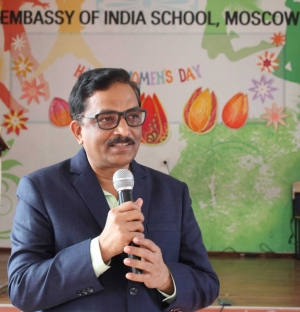
Mr. BIGHNESWAR PATNAIK, M.A., M.Ed., PGDGC, PGDDE
From Principal's Desk
- NIOS CHANNEL FOR SECONDARY CLASSES
- FOR SENIOR - SECONDARY CLASSES
- Swayam Prabha Free Educational Channel
- Khan Academy
Embassy of India School (Kendriya Vidyalaya), Moscow, Russia C/o Embassy of India, 6-8, Vorontsovo Polye, Moscow ( Russia ) -PINCODE 105064 10/2 Ulitsa Bolshaya Dist: Dorogomilovskaya Kievskaya,Moscow - 121059 Phone - 8 – 499 243 70 09 Email - [email protected]
- At a Glance
- CBSE Affliation No.: 7000001
- Classes: XII
- Streams: SCIENCE & COMMERCE
- Total Strength: 228
- Established: 1987
- Quick Links
- Fee Payment
- Photo Gallery
- Important Links
- Admission Portal
- Kendriya Vidyalaya Sangathan
- KVS RO KVS HQ
- KVS Transfer Portal
- KVS Sports Portal
- Visitor's Guide
- Report a Bug

- Add new school
- Provide access to existing school
- Private schools
- England / UK
- USA / America
- Switzerland
- University preparation
- Netherlands
- Universities Abroad
- Kids language camps
- Secondary school education
- Boarding schools
- Higher education abroad
- Learning languages
- English courses abroad
- English courses in England
- English courses in USA
- English courses in Ireland
- English courses in Canada
- Primary, secondary education
- Higher education
- Adult language courses
- Academic languages
- Language test preparation
- Business courses
- Online courses
- United Kingdom
- United Arab Emirates
- private school
- language school
- boarding school
- international college
- public school
- About Smapse Education
- Why work with us
- Why trust us
- Client's reviews
- Arranging your studies
- Financial guaranties
- Customer video reviews
- Services and prices
- Immigration and citizenship
- Scholarships
- Tutoring and preparation for schools, universities abroad
- Advertising
- Group travel
- For teachers
- Terms of partnership (for agents)
- Instructions (for agents)
- FAQ (for agents)
- For schools
- Educational fairs
Gymnasium Primakov - Primakov School
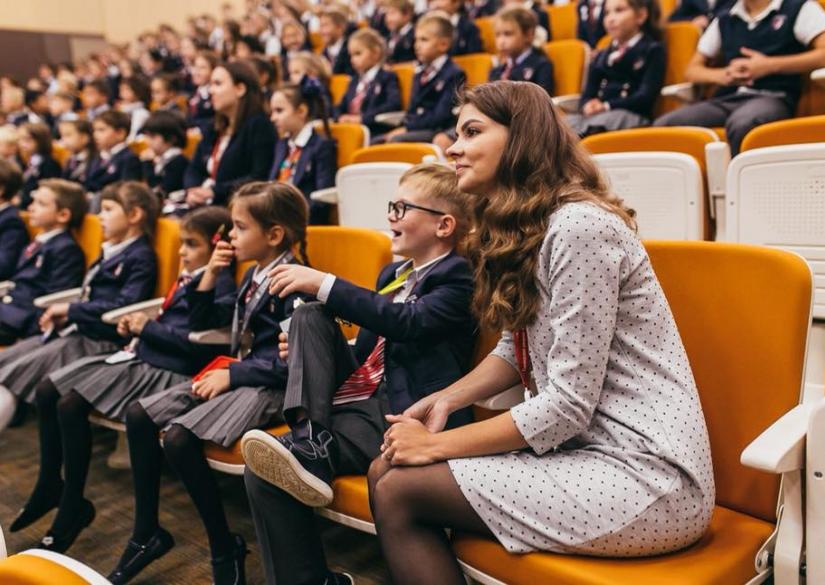
Description of Gymnasium Primakov - Primakov School
- Founded: 2017
- Location: Razdory village, Odintsovo district, Moscow region, Russia
- Total number of people: more than 1200 (390 preschool and 825 school level)
- Age of students: 4-16 years
- Type of education: joint (mixed)
- Type of accommodation: full board
- Language of instruction: Russian, English.
Primakova Primary School was opened in Moscow in September 2017 and became the first Russian school in which the full educational cycle (with pre-school preparation) is conducted in two languages: Russian and English. Administration and teachers (including many native speakers - they come from the USA, Great Britain, South Africa, Australia, Canada, as well as the best graduates of the MGIMO, MGU and other top universities) try to combine the traditions of the Russian school and the international educational standards adopted in the world.
In the elementary and middle classes the program is general, pre-profiled, but at the higher stage students can choose their own direction:
- humanitarian
- social and humanitarian
- natural science.
The slogan of the school is the bold phrase "Leadership is reality", and teachers are doing everything to let the graduates of the Primakov gymnasium repeatedly prove the truth of this credo.
Now the school enrolls about 1200 students (22 classes in total, on average 2-3 classes on parallels), but this amount is increasing, new classes and groups are opening, educational programs are expanding.
In addition to English, which students learn from the pre-school stage, courses of other modern languages are additionally organized, which can be visited at will - this will be a significant bonus when entering a university, in a further career in Russia or abroad. From 2019-2020, the school plans to introduce the International Baccalaureate course for high school students aged 16-18 (IB) - this will further facilitate the entry process if the graduate has decided to receive higher education abroad. High school students almost completely switch to bilingual education: subjects of the school program for 10 hours a week are studied with native speakers + 5-6 hours in English with Russian teachers. In addition, they organize meetings and lectures with university teachers, visit campuses of Moscow universities, and special classes in vocational guidance.
Programs and prices, tuition fees in Gymnasium Primakov - Primakov School
Elementary classes (3 years - 4 class), preschool education (3-7 years).
A special preparatory program that prepares the kids for an intensive, saturated curriculum at the Primakov gymnasium. The level of academic and psychological training is very high - graduates of this level have the maximum chance of enrolling in school (which takes place on a competitive basis).
Training is conducted in the game with the active application of communicative, interactive techniques. Teachers and educators with knowledge of English work with kids + at least 4 hours a week is conducted with the native speakers (usually during events and games). Much attention is paid to physical culture, sports education, as well as creative and musical component. In addition, the school employs speech therapists, defectologists and psychologists who help children develop properly and actively.
Elementary classes (grades 1-4)
Upon admission, a competitive selection and compulsory interview (both with the student and with the parents) are conducted in order to determine the child's readiness for school and the general level of development. Beginning with the 2nd class of children, regular tests are waiting to mark the level of progress, if necessary, to adjust the curriculum and help with solving difficult problems and questions. A minimum of 5 hours a week is spent on studying English, at least 10 hours a week - for additional lessons with native speakers. Little by little, young students begin to acquaint themselves with the basics of project and teamwork necessary for successful study in high school and university.
On average, a month of training at the Primakov Gymnasium costs 50,000 rubles, an additional contribution is paid annually for development and statutory activities (20,000 rubles one-time).
Middle classes, general education cycle (grades 5-9)
Intensive, balanced and diverse program aimed at mastering basic school knowledge in a variety of subjects. The study of the second foreign language begins (English children continue to engage with the media (at least 6-10 hours a week)), the design work continues. Together with teachers and parents, students begin to be identified with a priority profile for themselves: the curriculum is still general (pre-profiled), but it is already possible to concentrate more specifically on important directions for oneself and to prepare for choosing it in high school. On average, a month of training at the Primakov Gymnasium costs 50,000 rubles, an additional contribution is paid annually for development and statutory activities (20,000 rubles one-time).
High school (grades 10-11)
A rich and multifaceted educational program leading children to obtain a certificate and preparation for admission to selected universities in Russia or abroad.
Education in the 10-11 class is already profile - students can choose the priority direction:
Actively conducted project work, as well as classes on career guidance - the school has established close interaction with leading universities that help high school students decide on the future path of education. Active learning of the English language is continuing - with students, students spend at least 10 hours a week.
Accommodation, meals, prices
The school does not provide accommodation and transfer to school - parents or guardians decide this issue on their own. With a full-time program, students receive a full, balanced three meals a day while on campus.
- An effective combination of the traditions of Russian education and internationally recognized educational methods, a unique educational trajectory for the schools of Russia
- Intensive study of English from the youngest age, including constant lessons with native speakers
- A busy full-day program: in the morning and almost until evening students are engaged in useful and exciting pursuits, developing them as a harmonious personality
- Successful statistics of admission to the best universities not only in Russia, but also in foreign countries
- Active development of valuable personal skills, leadership qualities, ability to work effectively in a team and correctly organize your opinion; development of critical and analytical thinking, communication skills, ability to quickly make optimal decisions
- Availability of necessary state accreditations (a license for educational activities, a certificate of state accreditation of educational activities), prestigious certificates of the sample established in the Russian Federation.
Facilities and equipment at Gymnasium Primakov - Primakov School
The total area of school territory exceeds 30 thousand square meters: it is an amazing architectural and landscape composition, on which representatives of three well-known companies worked:
- Feierabend Architekten (Germany)
- Walters (United Kingdom)
- "Techno-Architect" (Russia).
The spacious green territory fully meets the concept of "comfortable and modern school in the forest", it enables pupils to appreciate and understand the peculiarities of landscape design, modern architecture since childhood. The school is open to the surrounding forest: vitreous glazing and large "French" windows are actively used, natural materials (for construction and for facing) of pleasant natural, natural colors are used. Inside the main building there are two beautiful gardens: for pupils of a kindergarten and for students. There is also an open space-atrium for rest and events.
In one building blocks of an elementary school, preschool block of preparation and an average comprehensive school are united - in total here it is engaged to 1200 persons.
Admission dates and extra charges
On average, the tuition fee in the Primakov Gymnasium costs 50,000 rubles / month, an additional contribution is paid annually for development and statutory activities (20,000 rubles one-time). The indicated cost is not included and is paid additionally:
- Registration fee
- Examination Boards
- Additional academic and language classes (optional)
- Additional leisure activities and excursions (optional)
- Personal pocket expenses
- Accommodation.
Entry requirements, how to apply, what is required to enrol
Admission to the gymnasium is conducted on a competitive basis using a variety of tests and entrance tests - the exact list depends on the class and age of the student. Tests are divided into psychological, pedagogical and subject:
1) Pre-school department (4-6 years)
The general level of development (speech, psychological readiness for learning), the availability of knowledge of the English language.
General readiness of the stuedts to learn:
- knowledge of English
- motivation for study and perseverance
- ability to generalize and analyze facts
- development of speech and motor skills
- the presence of spatial and quantitative representations.
3) Grades 2-11
- entrance examinations in mathematics, Russian and English
- trial full-fledged school day
- ability to show leadership qualities.
All kinds of awards and achievements of the student are necessarily taken into account: olympiads, contests, etc. An interview is also conducted with the parents / guardians of each students in order to determine whether the academic goals of the gymnasium coincide with their own.
Institution on the map
Residence permits, citizenship and other services.
- Guardianship services during the studies
- Student supervision
Review about Gymnasium Primakov - Primakov School
Recommendations on when to apply, similar educational institutions.

Interested in studying in Gymnasium Primakov - Primakov School?
Explore more than just language.

Join us and stay up to date with the latest news and promotions!


IMAGES
COMMENTS
Students to attempt to use 1, 2, or 3 pictures as a focal point in the story. Students will have the chance to apply skills and vocabulary learnt independently to their writing. Parents are encouraged to bring school practices for teachers to evaluate their learning progress. Mock Assessments are conducted for P1-P4 students in Term 2; P5 & P6 ...
School Workshops during 2024. In-Person Literacy Workshops. Engaging and Exciting Literacy workshops delivered in your school. Many of which are available for a whole-school in one day! Please get in touch to discuss how we could work in your school. Live Streamed Workshops. Enjoy one of our Shakespeare, Poetry or Literacy workshops live ...
One Day Creative offers creative primary school workshops to pupils across England. History, STEM, World Culture, Literacy and PSHE - dive in. ... Using the performing arts, our primary school workshops empower young people - helping both pupils and teachers access the creativity in their curriculum. Browse our range of 100+ creative ...
Plus additional costs for local accomodation and travel. Writing after school inset is also available at a reduced rate £250 when booked to coincide with a workshop. For additional details or to book email [email protected]. Target groups within your school. - Pupil Premium children, - G & T pupils, - Pupils working below their expected level.
Creative writing in schools is an important part of learning, assessment, and reporting, however, there is evidence globally to suggest that such writing is often stifled in preference to quick on-demand writing, usually featured in high-stakes testing (Au & Gourd, 2013; Gibson & Ewing, 2020).Research points to this negatively impacting particularly on students from diverse backgrounds ...
Creative writing club. Before becoming an author, I ran creative writing clubs in 30 schools a week for almost a decade. I hired over 100 tutors, won some awards, teamed up with publishers to arrange author events, and even had requests from teachers in Europe, Dubai and Australia asking to launch a club in their schools.
Our Writer's in Neighborhood and Schools (WINS) Program places professional writers in schools, after-school programs, and community-based agencies to engage children, youth, educators, and families in creative writing classes, book clubs, poetry slams, zine camps, and more. Be a Part of the Writer's Garret. DONATE. Get in touch. 214-828-1715.
It is not just about writing a good composition. It is about satisfying the requirements in the most efficient manner. This is the truth most people don't realise about creative writing for primary school students. Learn how to plan, apply key strategies and skills, and make story adaptations that will save you time and give you returns.
10. Be professional. If you're being paid to run the workshop, then make sure you give value for money. Be smart but comfortable in what you wear—you might spend a lot of time crouching by tables for example. Send in your invoice on time. Ensure you have PLI and if necessary, a DBS certificate. 11. Lastly….
John Ball Primary School (Year 2021/2022) 06 Sep 2021: Monday: Southvale Road, Blackheath, London, SE3 0TP: Closed: Unicorn Primary School: 22 Apr 2020: ... - For Key Stage 2: regular after school creative writing workshops for up to 22 children, for between £60 and £80 per term Our workshops have the following links to the English national ...
Creative Writing Information Package 2021 | For more information, visit https: ... • Writing workshops with published writers • Peer critique sessions ... Sunshine Primary School_Bobby Choo Save the document using a .doc or .docx extension only 6.
43 Best Kids Creative Writing Classes in 2024 Showing 43 courses that match your search. Elementary Writing: Animal Stories. Brave Writer Add to shortlist. In this five-week course, each student will conceive and draft a short story of up to 1,200 words. ... This program caters to middle and elementary school students, focusing on enhancing ...
In our Primary One programme for Creative Writing for Primary School, we teach creative writing through plot development using the elements of drama to brainstorm a plot. This makes creative writing and composition writing fun and therefore builds interest and inspiration in writing. Another example would be using visual learning elements and ...
For schools. NCW works with many schools and hundreds of pupils each year to foster a love of books, words and ideas. We recognise that creativity and a love of words and writing can begin at an early age, and increased confidence with words and ideas supports enjoyment and attainment throughout education. As such, our work with schools aims to ...
Creative Writing Workshops for Primary Schools - #LiverpoolWrites. As part of Liverpool's Year of Writing (#LiverpoolWrites), author Jude Lennon has designed workshops to inspire pupils to find the joy in writing. The emphasis is on creativity, imagination, expression and writing for pleasure.
College Preparation Writing for High School--Semester I: Research and Writing Basics. Molly McGill, M.A. 4.9. (833) €260. €27 per class. Group. class. 13-18.
Refuge Rhymes Primary Schools. Refuge Rhymes comprises workshops in which pupils explore and use the poetic form of dramatic monologue to write persuasive, collaborative verses focusing on: Refuge for Animals (EYFS - Year 2/P1 - P3) …Refuge for Friends (Years 3 & 4/P4 & P5 … and Refuge for Strangers (Years 5 & 6/P6 & P7). Refuge Rhymes can accommodate the whole of up to a two-form ...
The Middle School Advanced Writing Exploration Program (AWE) invites 7th and 8th-grade writers to be part of a community of dedicated, focused writers looking to explore, expand, and deepen their literary passions. The program includes multi-genre workshops, as well as genre-specialized master class sessions.
School Creative writing Workshops. Back To Top. Upcoming Events. World Book Day 7 March. British Science Week 8 - 17 March. World Puppetry Day 21 March. Holi, Festival of Love 24 - 26 March. World Theatre Day 27 March. Maths Awareness Month April.
I have taught and coached kids from preschool to high school. I graduated with a Master of Arts in Teaching majoring in History from the University of in 1999 and have always continued to add to my professional and content knowledge. A little about the present at MCS: The students in 4th Grade get to integrate what they have learned from K-3.
Completed in 2018 in Moscow, Russia. Images by NARODIZKIY, Dmitry Voinov, atelier PRO. The official grand opening of a special school, Letovo School, took place in Moscow last September. The ...
Contact. Embassy of India School (Kendriya Vidyalaya), Moscow, Russia C/o Embassy of India, 6-8, Vorontsovo Polye, Moscow ( Russia ) -PINCODE 105064 10/2 Ulitsa Bolshaya Dist: Dorogomilovskaya Kievskaya,Moscow - 121059 Phone - 8 - 499 243 70 09 Email - [email protected]. 08 Mar 2024 11:34 AM [ Fri ] 186596.
Description of Gymnasium Primakov - Primakov School. Founded: 2017. Location: Razdory village, Odintsovo district, Moscow region, Russia. Total number of people: more than 1200 (390 preschool and 825 school level) Age of students: 4-16 years. Type of education: joint (mixed) Type of accommodation: full board.